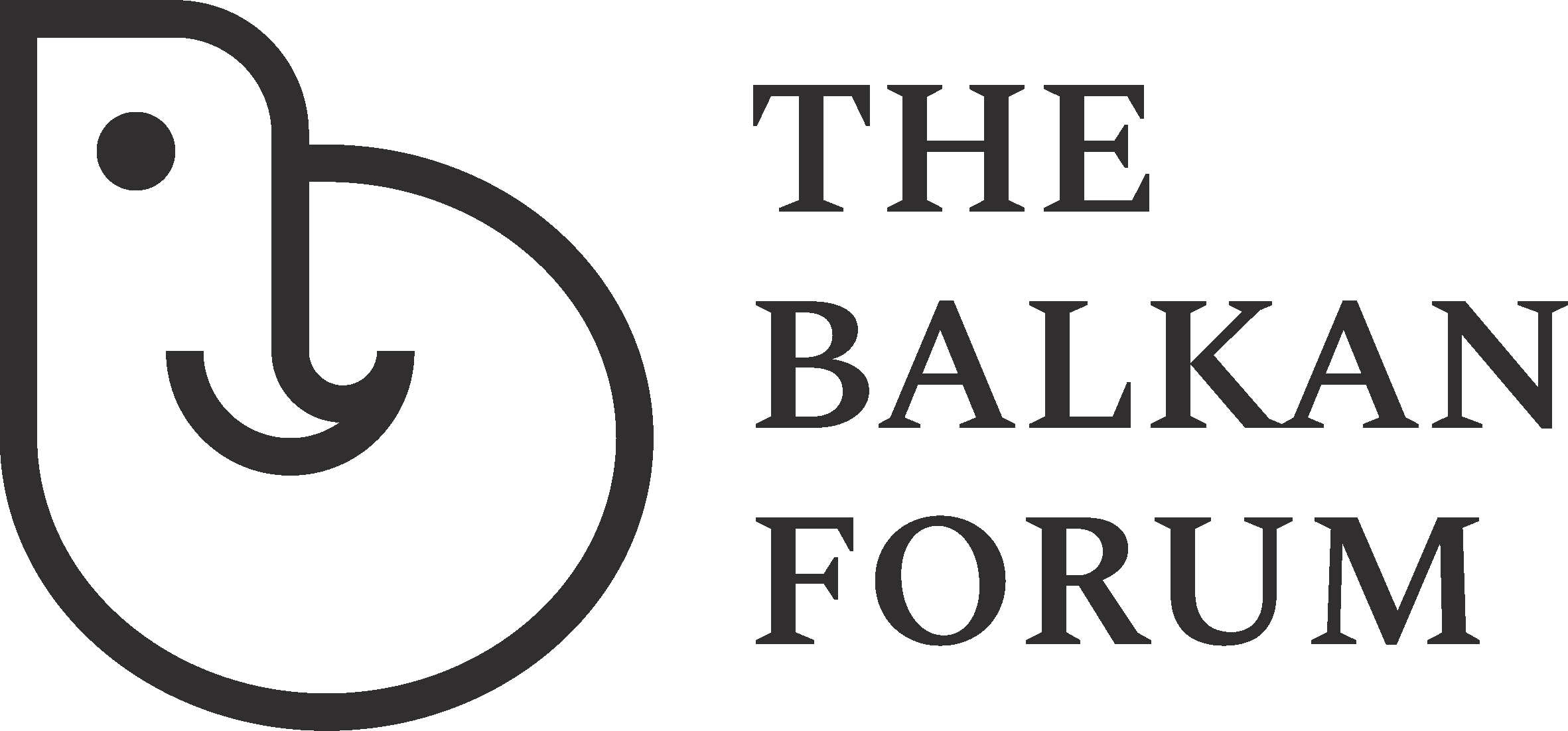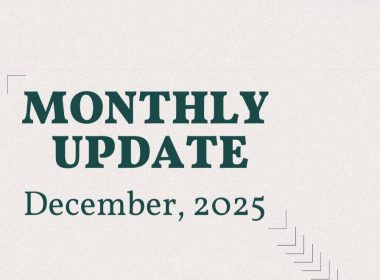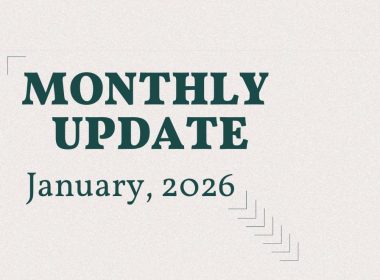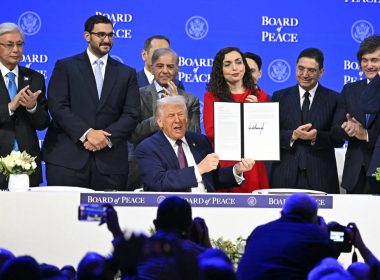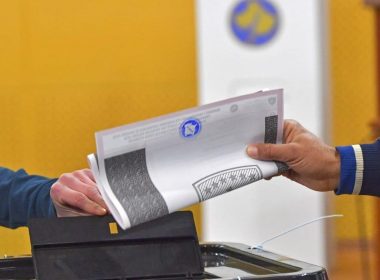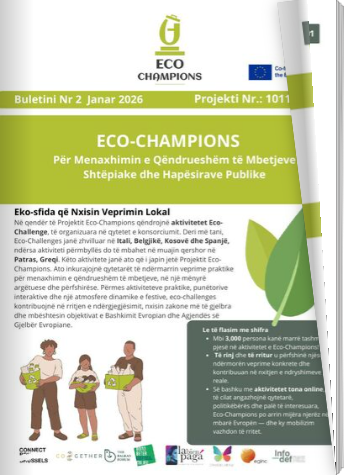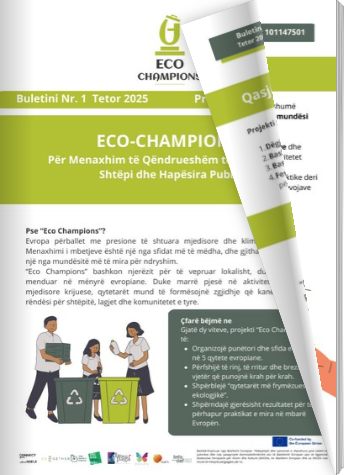The Eco Champions project represents a collaborative effort to tackle one of the most pressing challenges of our time—sustainable waste management within the framework of the EU Green Deal. This dynamic initiative is designed to actively engage citizens and communities in discussions and activities centered on sustainable waste management policies at both EU and regional levels. This project aims to foster democratic participation in policy-making processes, encourage civic responsibility, and instill a sense of pride across local and regional landscapes.
Eco Champions Newsletter N. 2
Eco Champions Newsletter N. 1
Eco Festival – Prishtina Sustainable Design Week 2025: Where Sustainability Meets Creativity
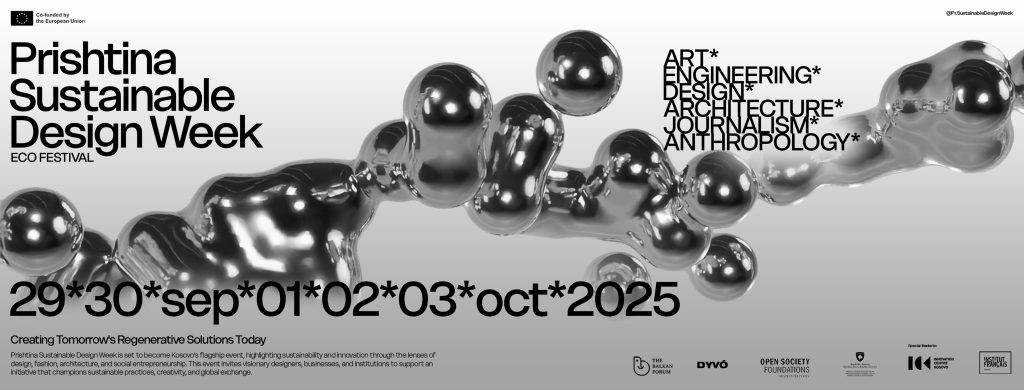
Prishtina, 29 September – 3 October
From 29 September to 3 October 2025, Prishtina came alive with creativity, innovation, and community spirit during the Eco Festival – Prishtina Sustainable Design Week (PSDW). Organized by The Balkan Forum in collaboration with DYVO Lab within the ECO CHAMPIONS project and co-funded by the European Union, the festival marked a milestone for Kosovo’s environmental and creative community, transforming the capital into a dynamic hub of sustainability and intergenerational collaboration.
Building Bridges Between Generations for a Greener Future
The festival’s mission was clear: to connect generations and strengthen awareness and practical competences in sustainable waste management, circular design, and eco-innovation. As the first national edition of its kind, PSDW brought together culture, education, and civic engagement, proving that environmental awareness can be both lived and celebrated.
Across the week, 400+ participants including students, educators, designers, citizens, policy makers/local institutions, and diplomats joined workshops, public challenges, artistic interventions, and conferences. The festival’s inclusive and participatory approach enabled youth, senior citizens, and professionals to collaborate, share skills, and reimagine waste as a source of creativity and innovation. With amplification from partners including the French Institute, TOKA, YMCA, BONEVET, and ICK, PSDW became a citywide movement of awareness and pride.
By combining playful learning (Interactive Eco Quiz), practical civic action (Waste Sorting Challenge), and creative innovation (Upcycling Design Marathon), PSDW showed that sustainability thrives where knowledge meets participation, positioning Prishtina as a growing node in Europe’s network of sustainable design capitals.
From Awareness to Practice: A Behavioral Learning Framework
PSDW followed a three-phase learning arc aligned with the ECO CHAMPIONS approach:
- Before the Festival – Awareness & Intention: Open calls, social/press outreach, and NGO partnerships introduced citizens to sustainability, circularity, and civic responsibility, framing activities around accessible eco-principles.
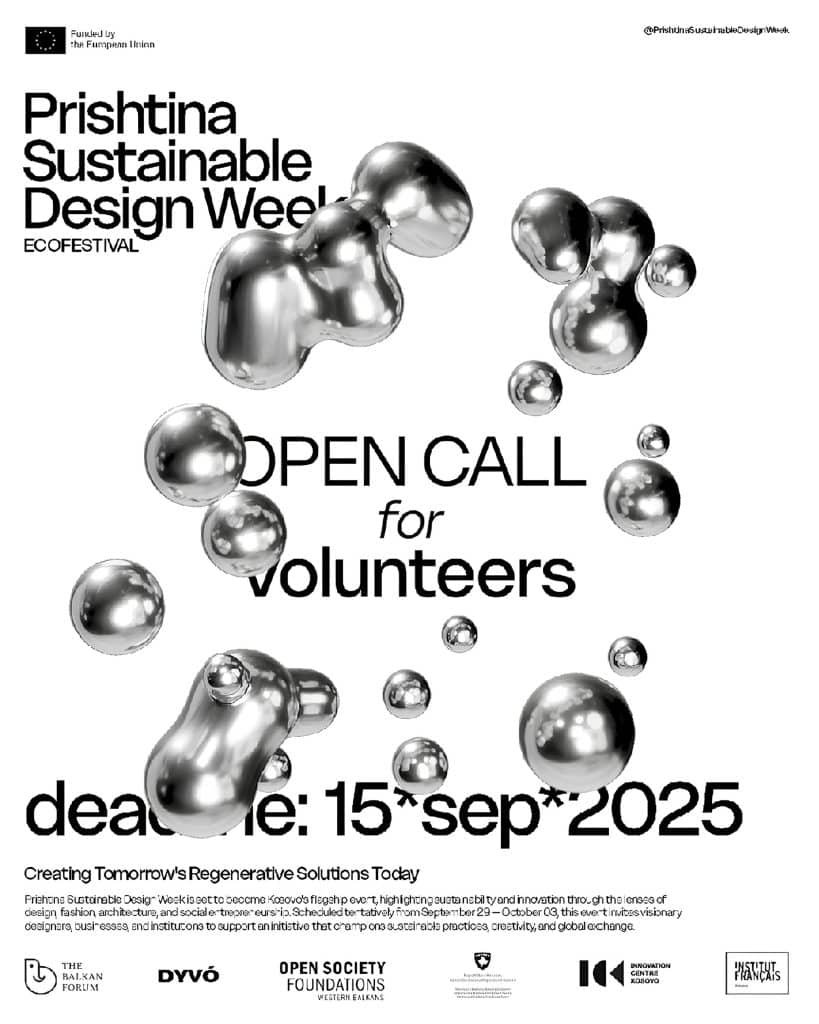
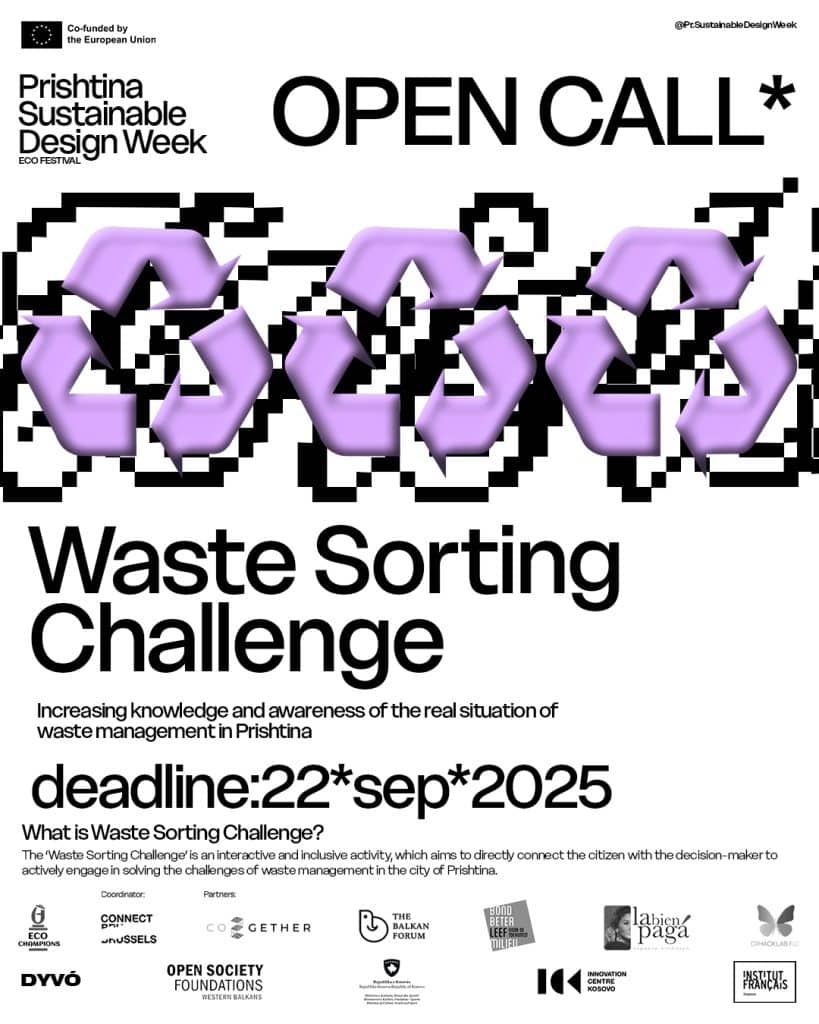
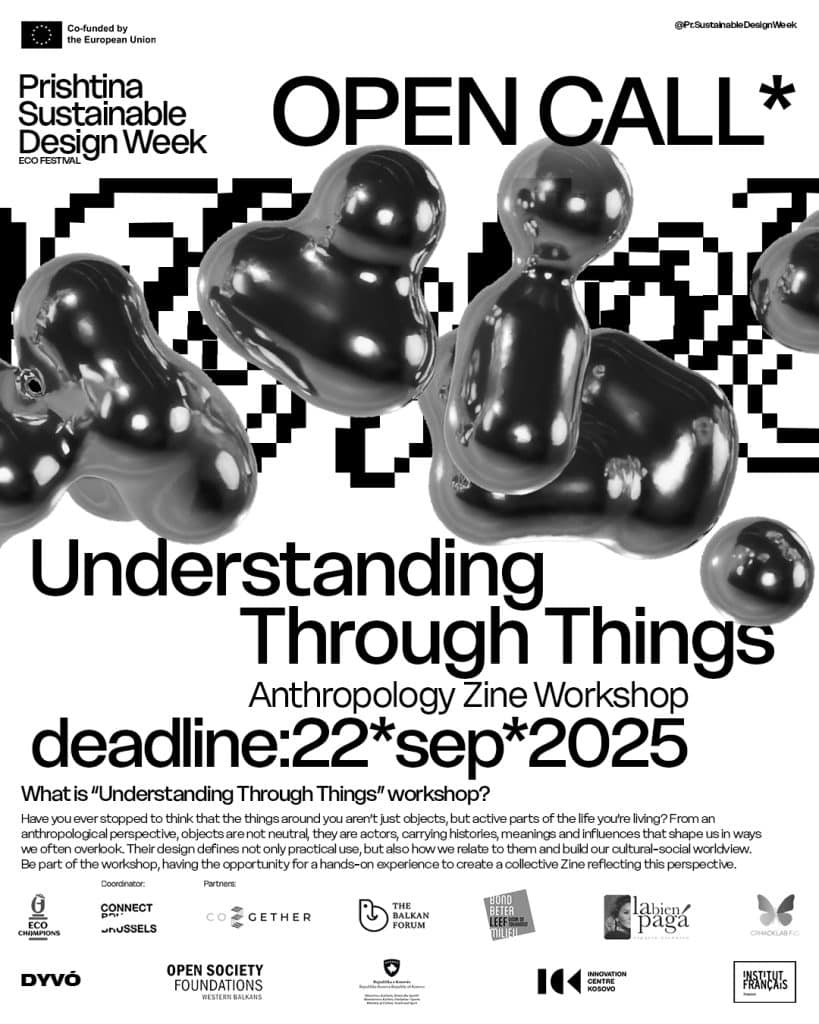
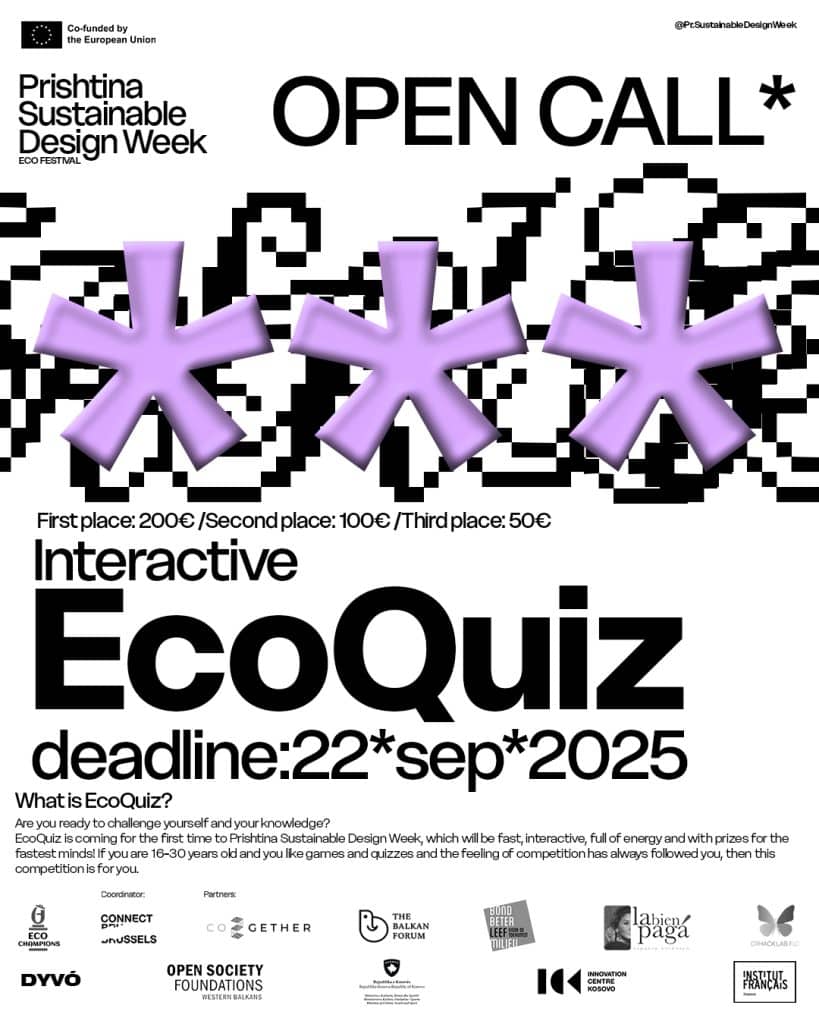
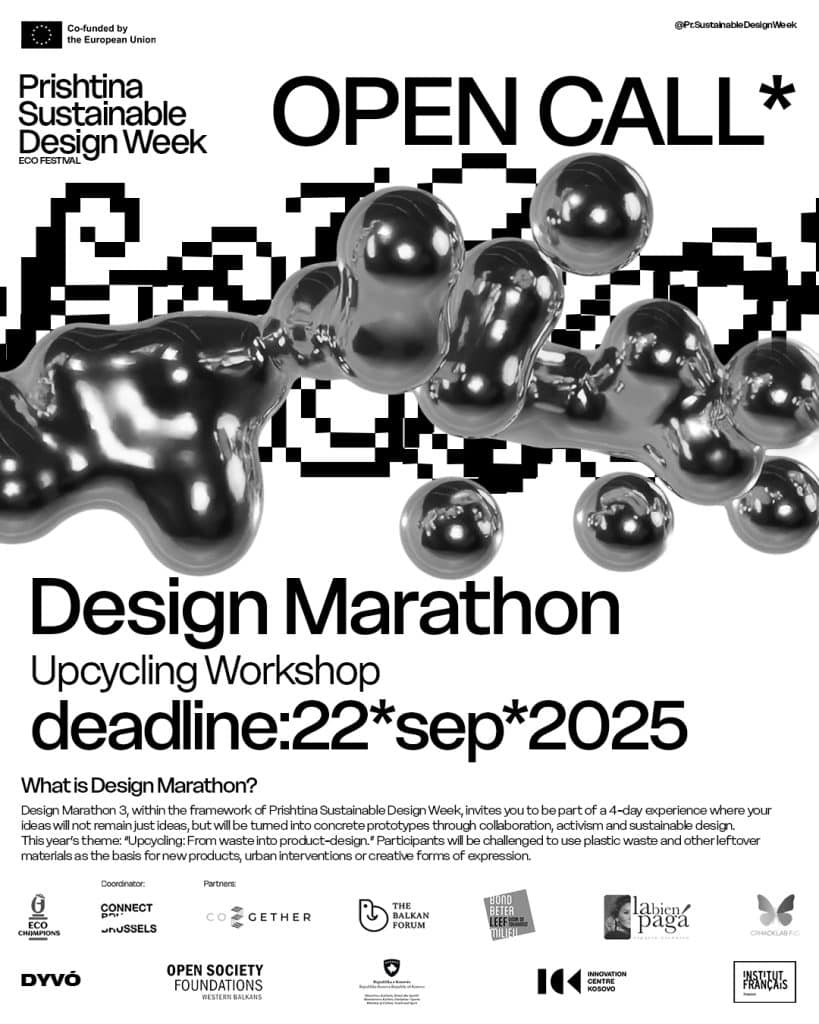
- During the Festival – Practice & Social Reinforcement: The city became a living laboratory. Through the Upcycling Design Marathon, Waste Sorting Challenge, and Interactive Eco Quiz, participants translated knowledge into hands-on action, guided by mentors, facilitators, and local experts serving as “eco-coaches.”
- After the Festival – Reflection & Long-Term Engagement: Digital surveys, QR feedback, and follow-ups with schools, universities, and partners will serve as useful input that will help to transform short-term engagement into long-term motivation, as many pledged to continue eco-creative practices in communities and curricula in future.
Key Activities
Upcycling Workshops (Design Marathon) – Creativity Meets Sustainability
49 participants (40 women, 9 men)
A four-day design sprint where designers, students, and innovators transformed discarded materials into functional prototypes guided by circular economy principles.
- Day 1: Vision by DYVÓ; lecture by Sytrime Dervisholli (circular economy); field trip to Rec-Kos Metals Recycling Company.
- Day 2: Problem statements; lecture by Valerio Perna (Italy) on design thinking and sustainability; concept development and feedback.
- Day 3: Prototyping with Gezim Ramizi (DYVO Lab) and mentors; iteration and refinement.
- Day 4: Finalization, installation, and public exhibition. The Final Exhibition gathered a total of 44 participants, including 29 women and 15 men, who attended the closing event to celebrate the creative outcomes and sustainable innovations developed during the Design Marathon.
Outcome: A collective act of re-imagining the future, showing how waste becomes value and how design drives environmental change.
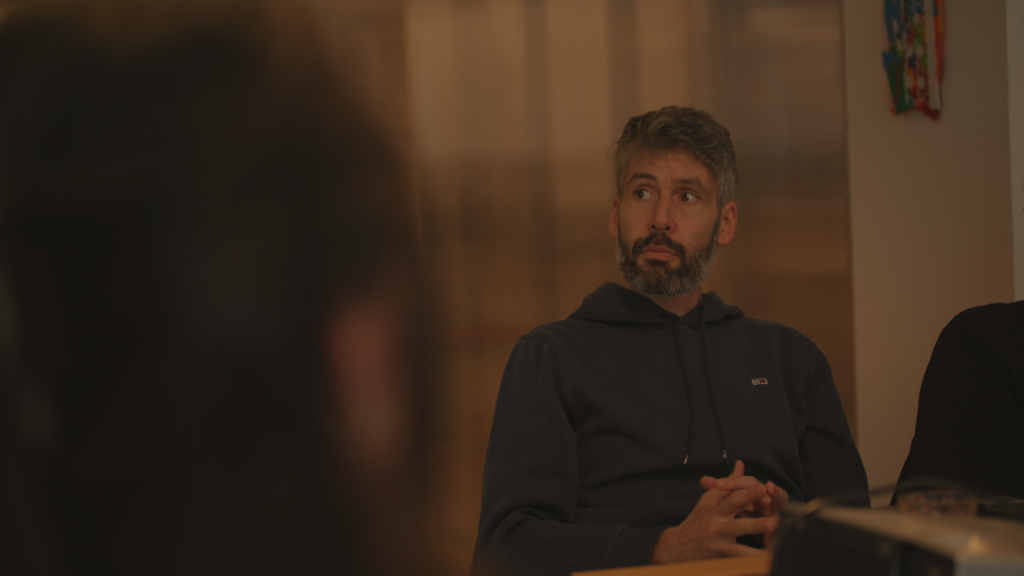

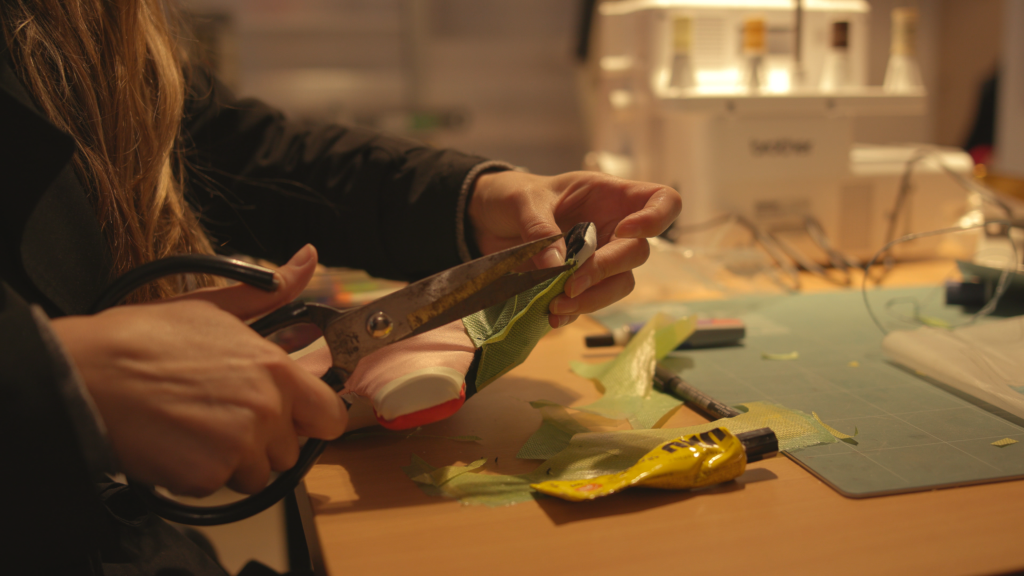
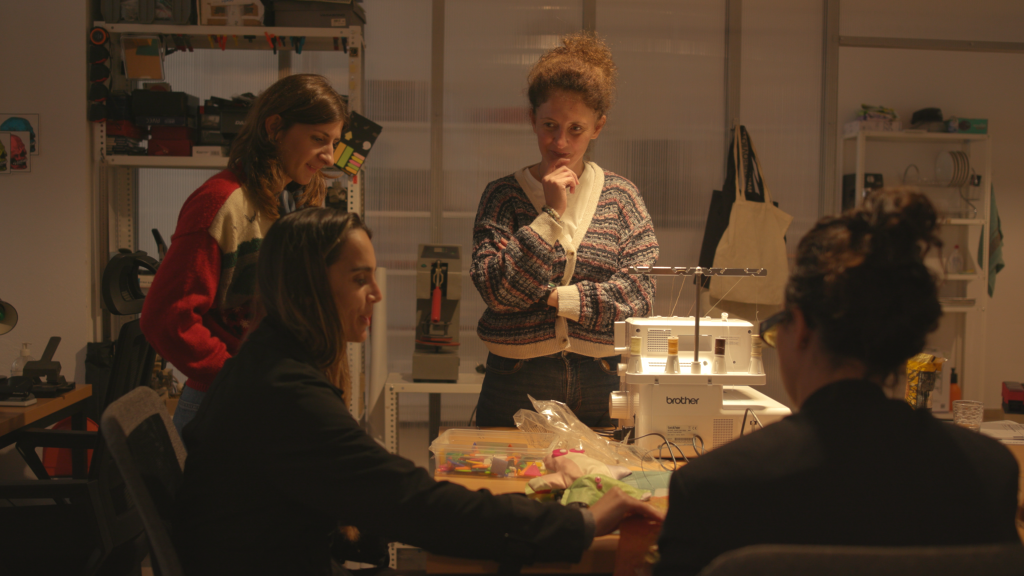
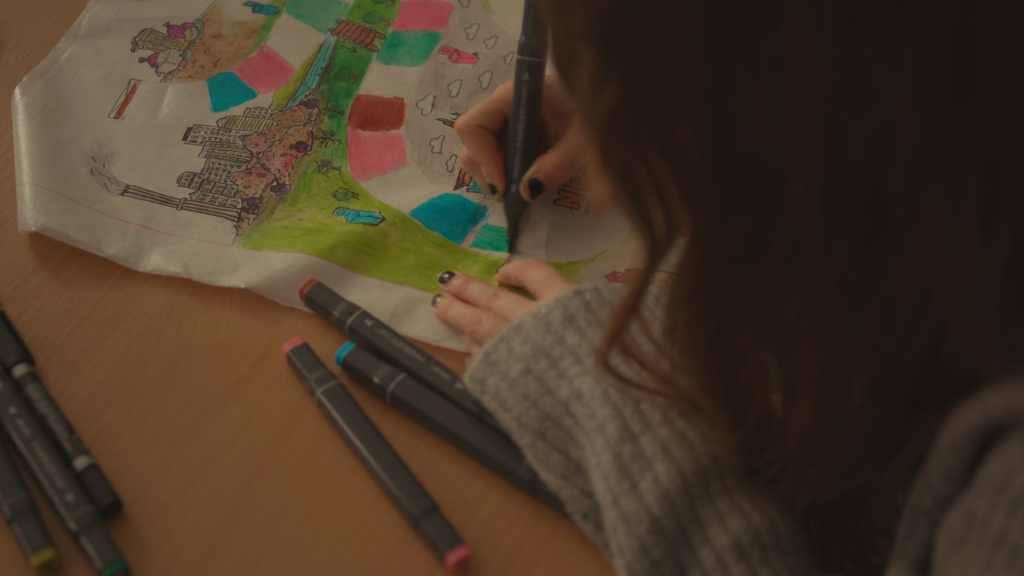
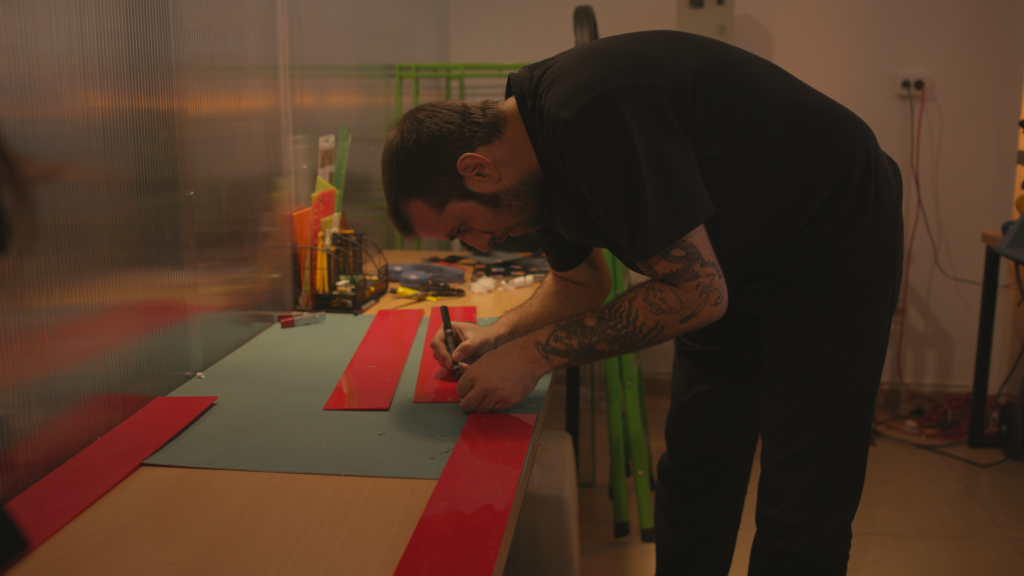
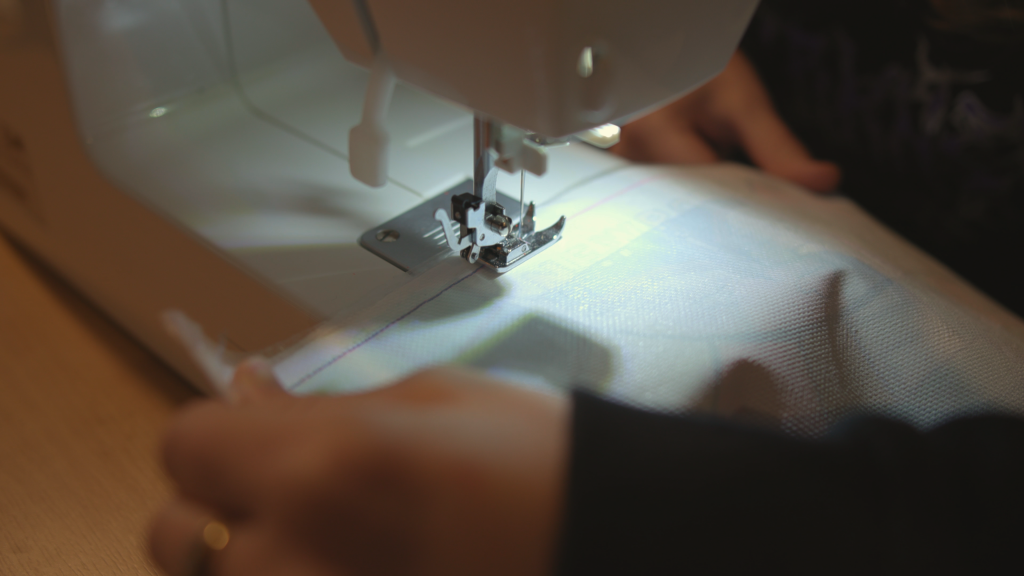

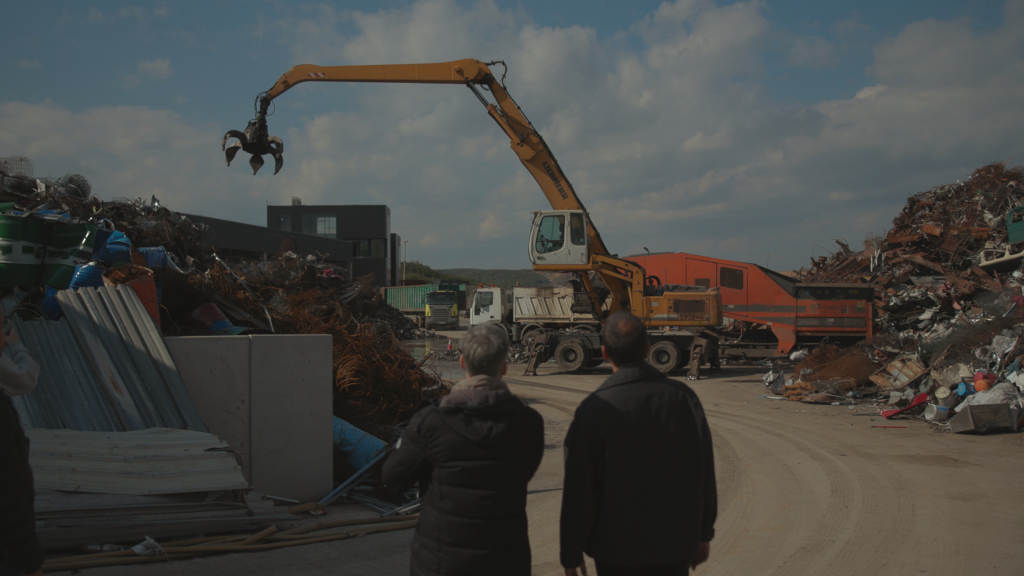
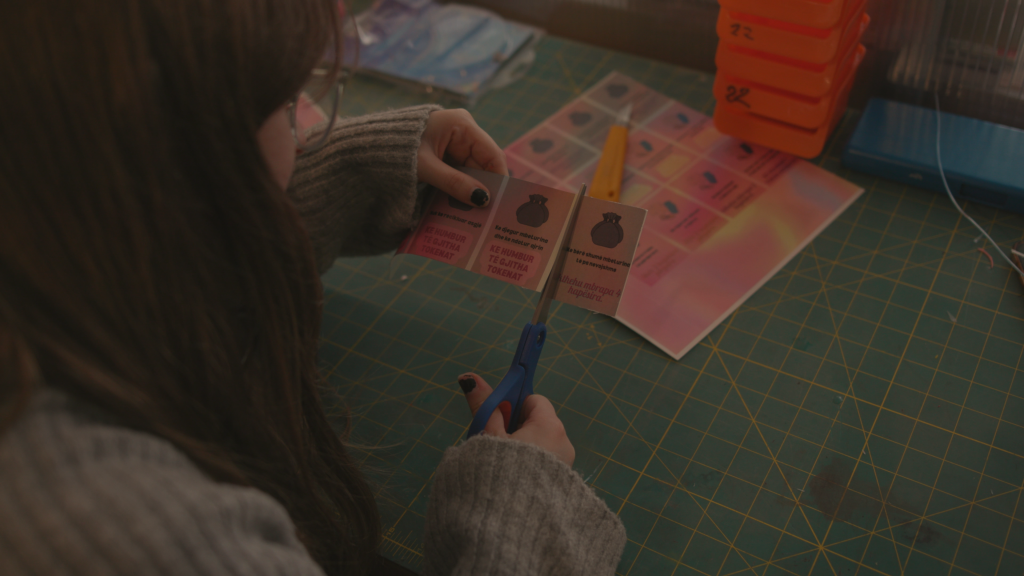

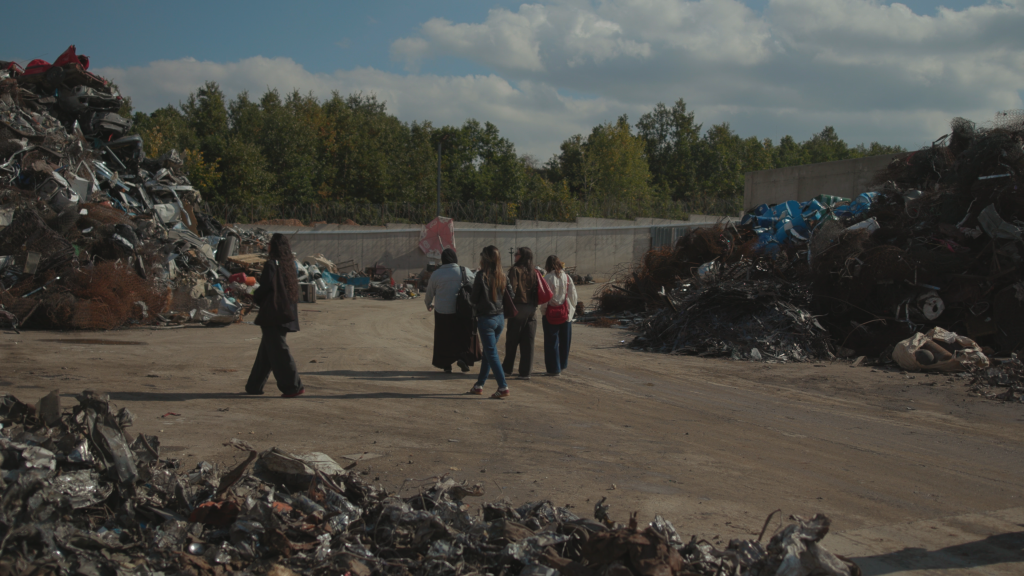
Anthropology Workshop – Understanding Through Things
Led by anthropologist Zanita Halimi, this reflective series used everyday objects to explore relationships, memory, identity, and sustainability. Through observation, dialogue, drawing, and hands-on work, participants co-created a collective zin, presented during the final exhibition, bridging anthropology, design, and civic engagement in a lasting artifact.
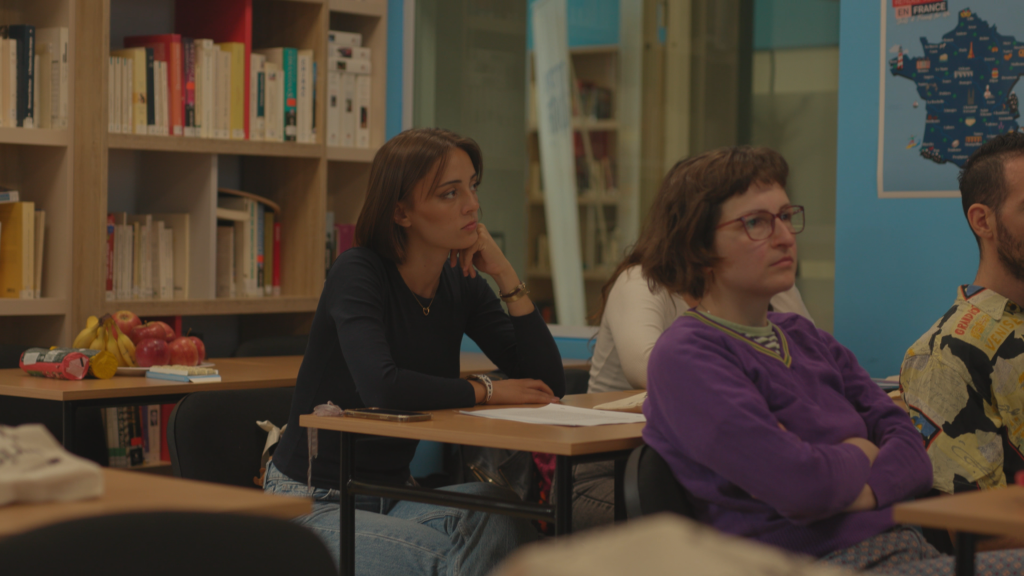
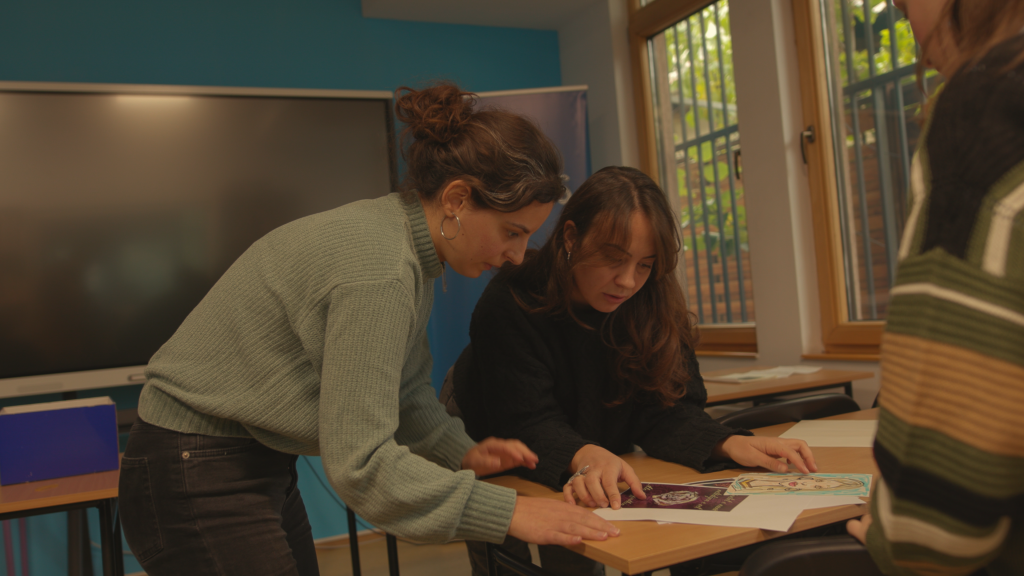
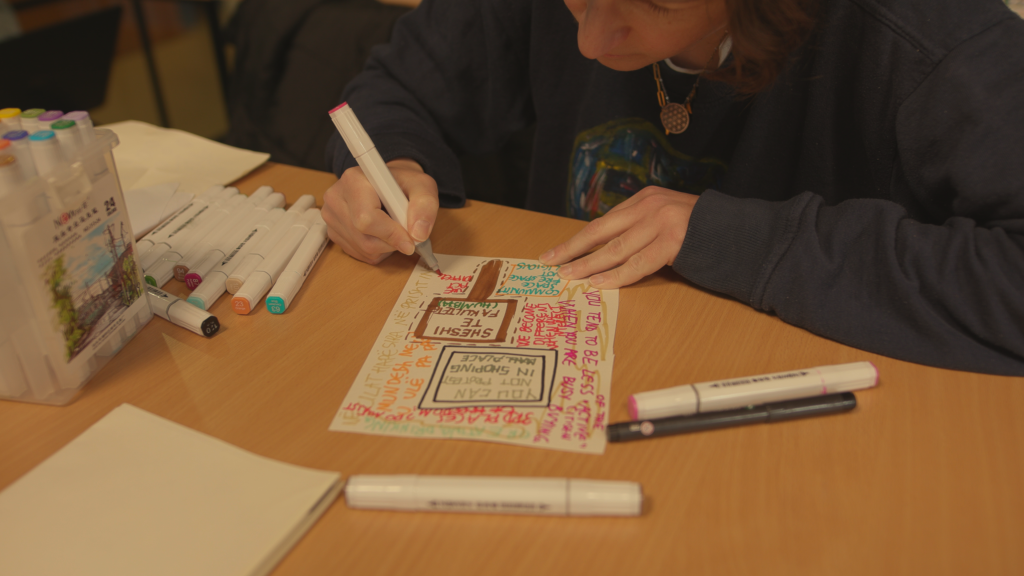
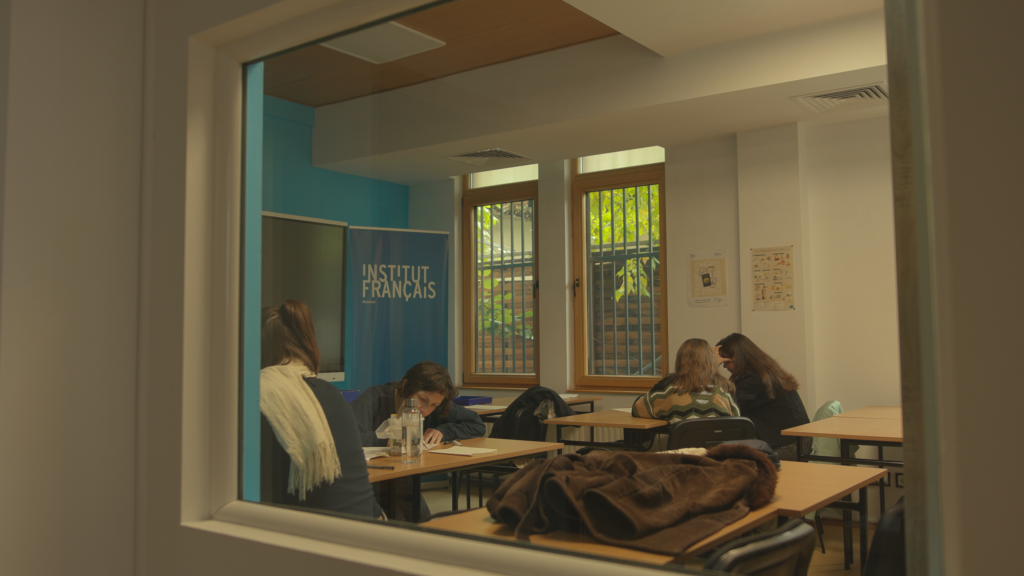
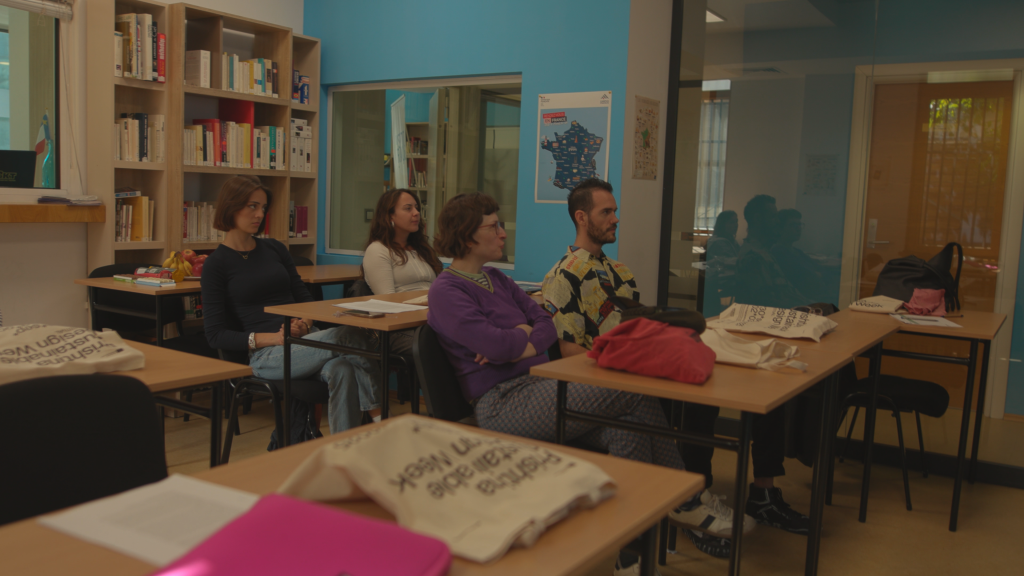
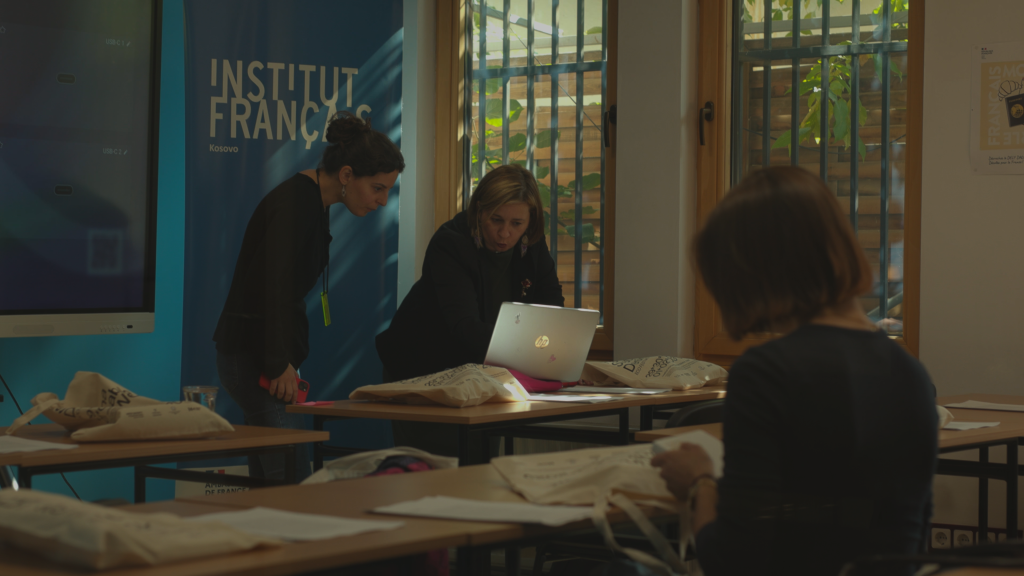
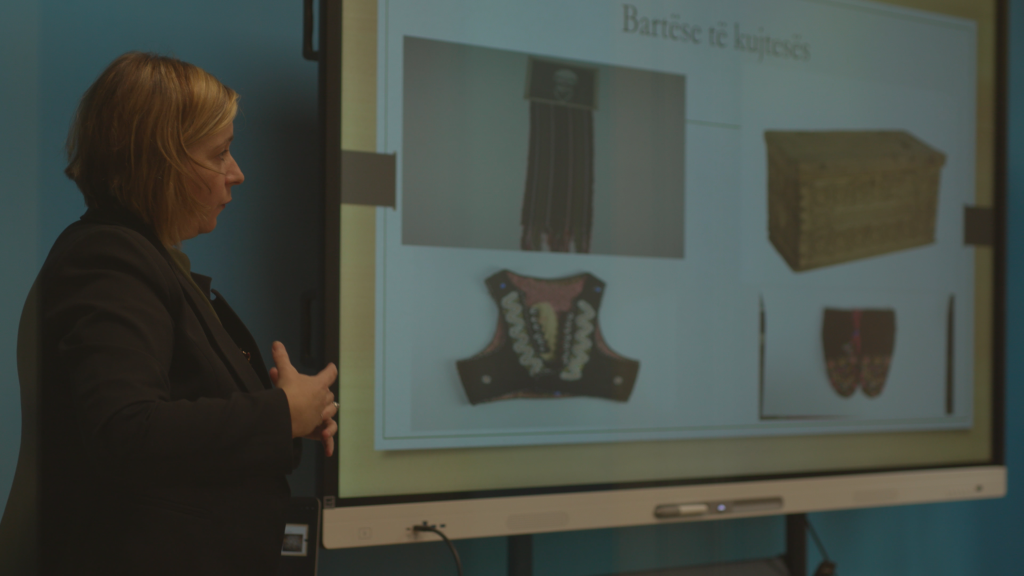
Interactive Eco Quiz – Learning Through Play
Venue: Innovation Centre Kosovo (ICK)
18 participants (8 women, 10 men)
Participants received an information package on Kosovo’s laws, regulations, and strategic policies for waste management and environmental protection. Quiz questions drew directly from these materials, turning policy literacy into an engaging, inclusive, team-based experience.
Integrity & impact: Transparent scoring, three symbolic prizes, and strong peer-to-peer motivation to share knowledge with families and communities.
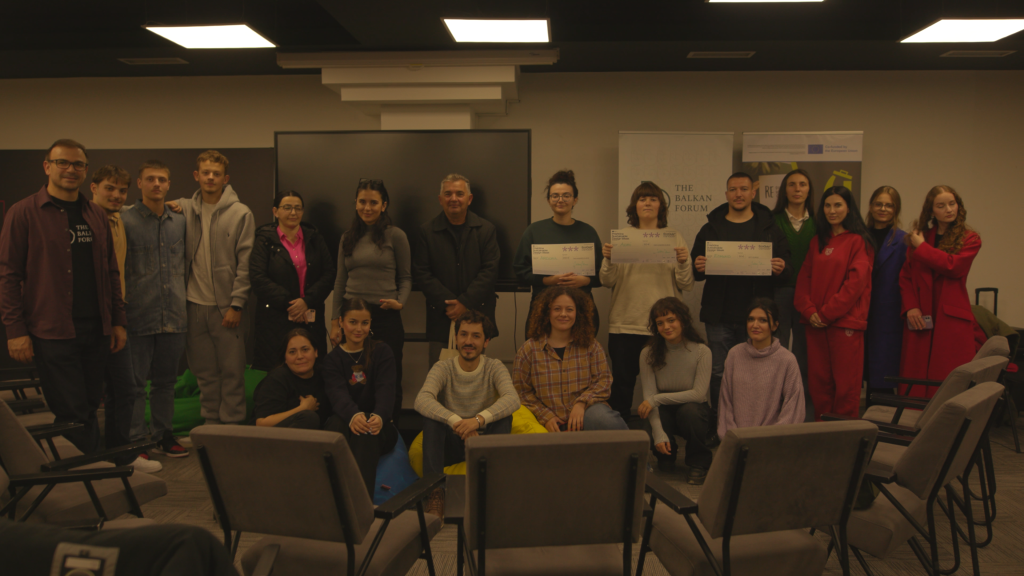
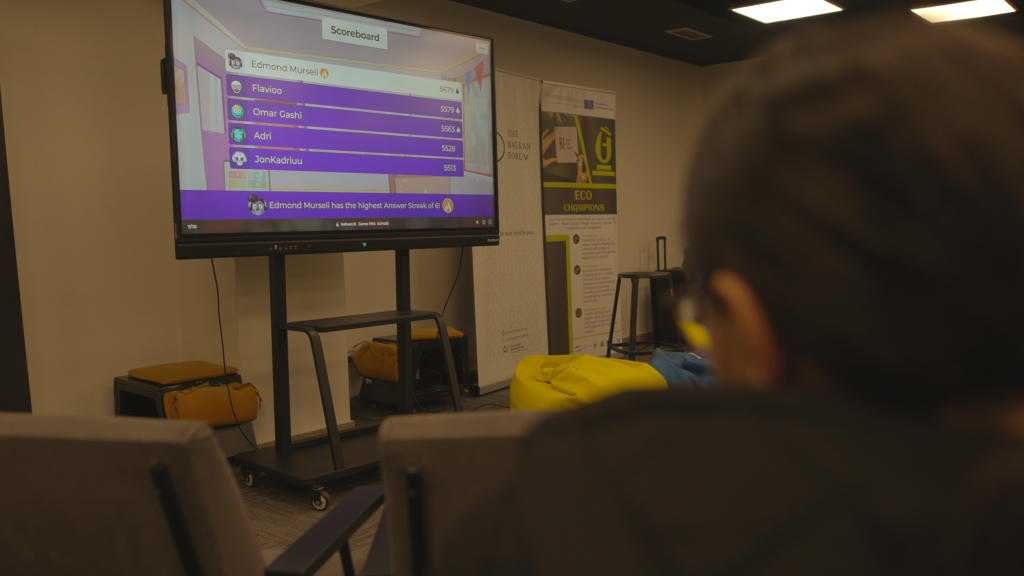
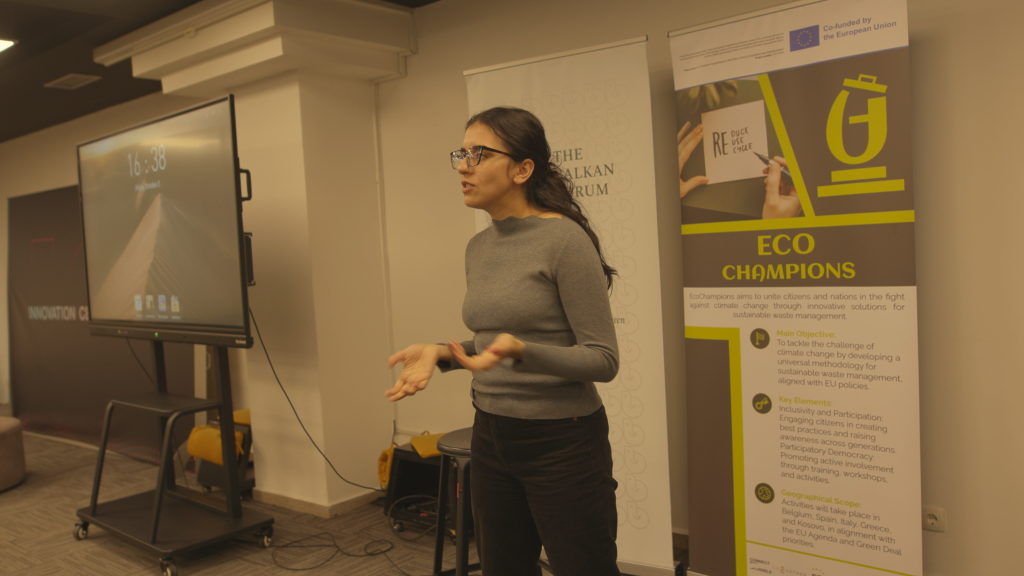
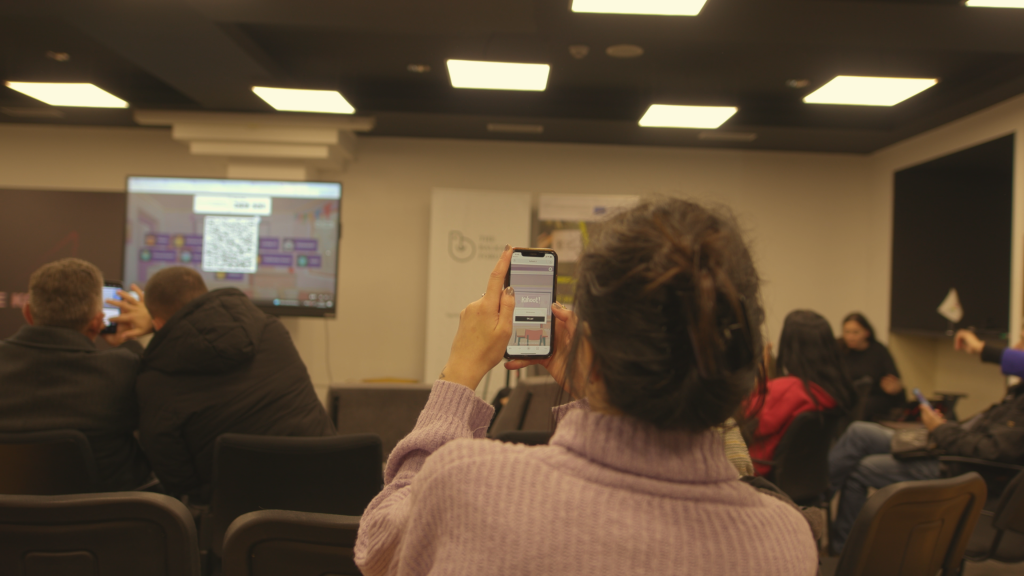
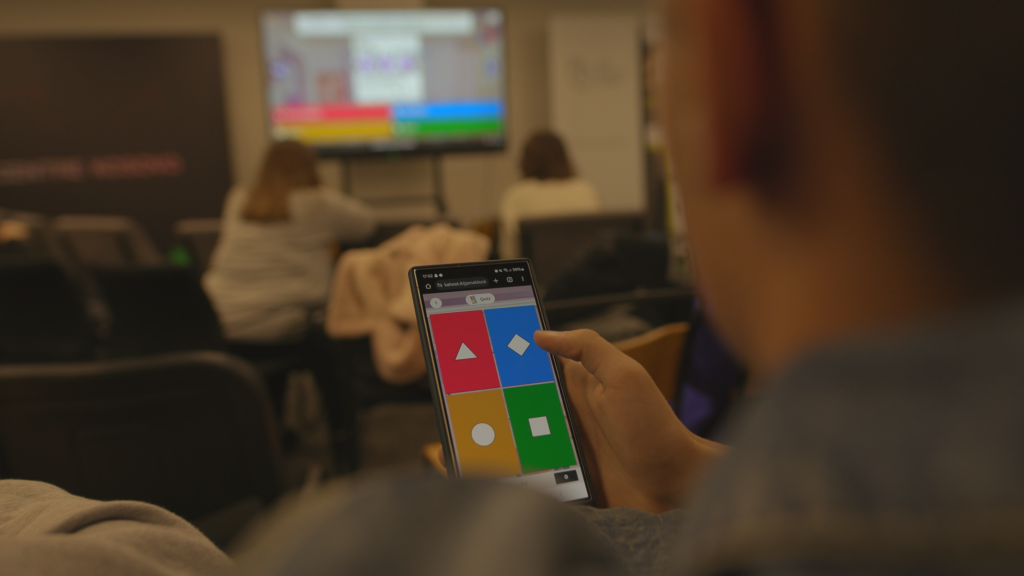
Waste Sorting Challenge – From Awareness to Action
14 participants (9 women, 5 men)
-
- Interactive discussion with Public Services of the Municipality of Prishtina on urban waste challenges.
-
- Brainstorming solutions for a cleaner city.
-
- Neighborhood action: Identifying missing bins; marking locations with eco-friendly beetroot spray and the slogan “When will recycling start?”
-
- Joint Declaration signed for local and central authorities, urging better waste infrastructure and greener urban planning.
Result: A compelling model of citizen engagement + institutional presence + creative action influencing policy advocacy and tangible urban improvements.
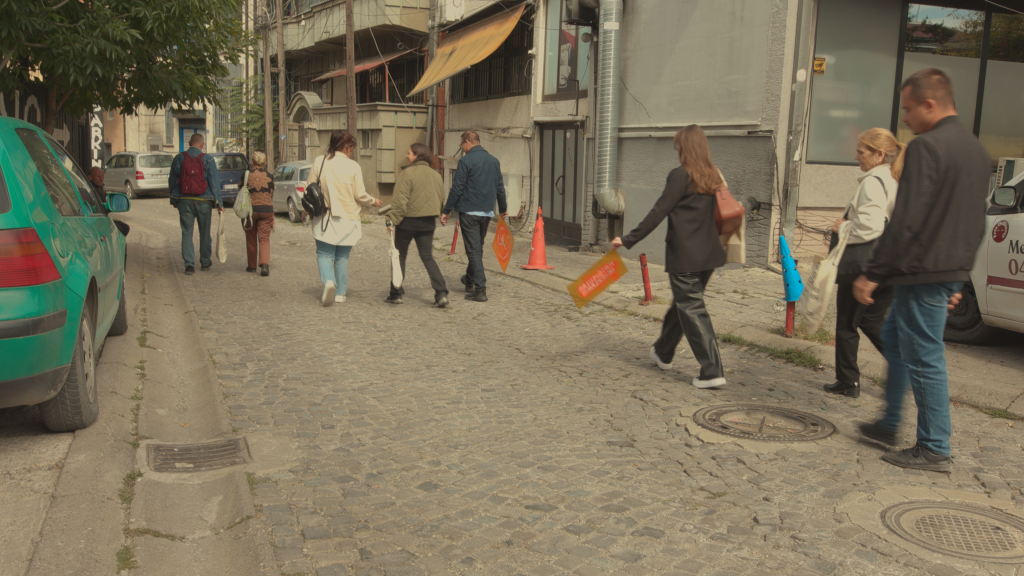
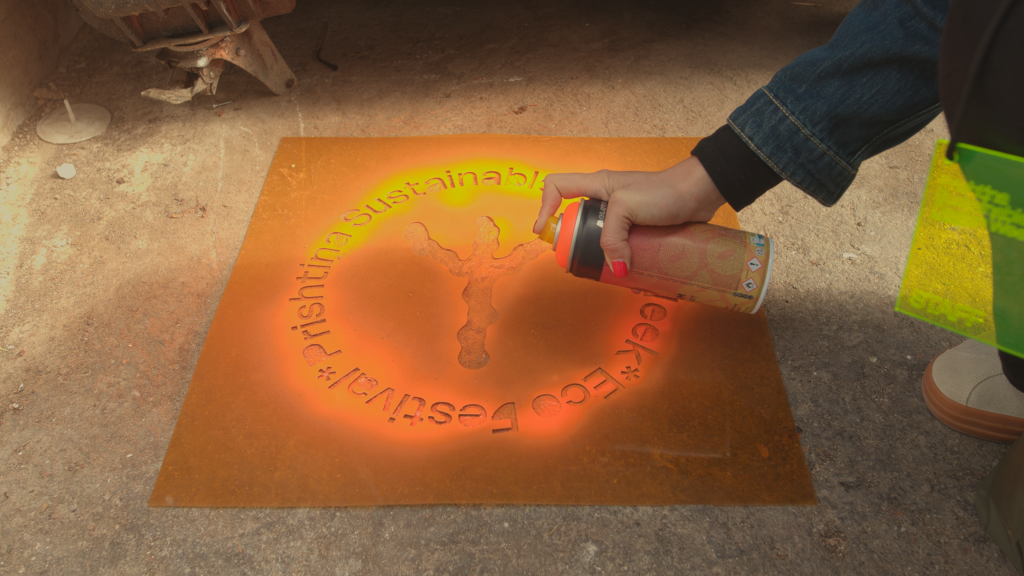
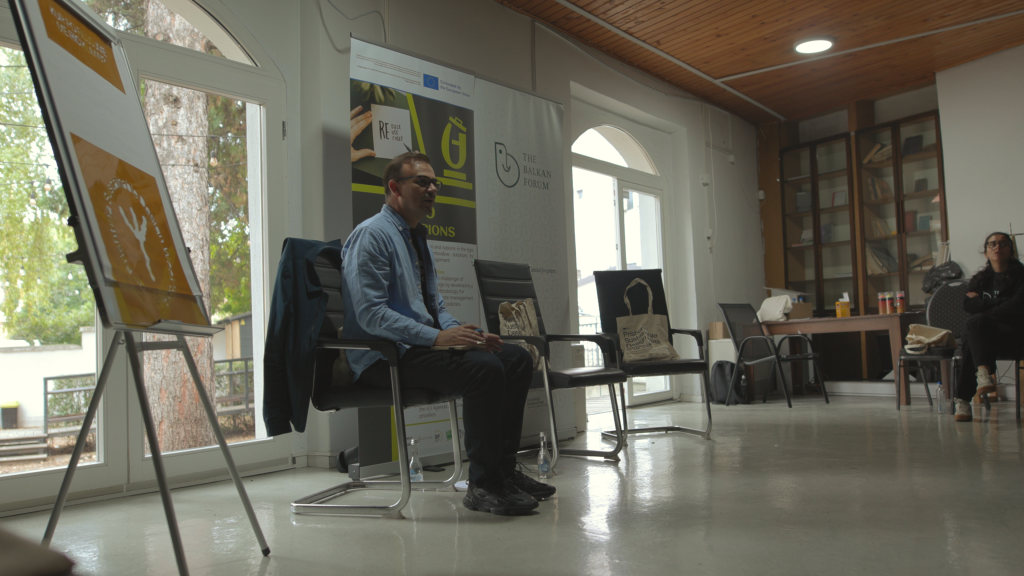
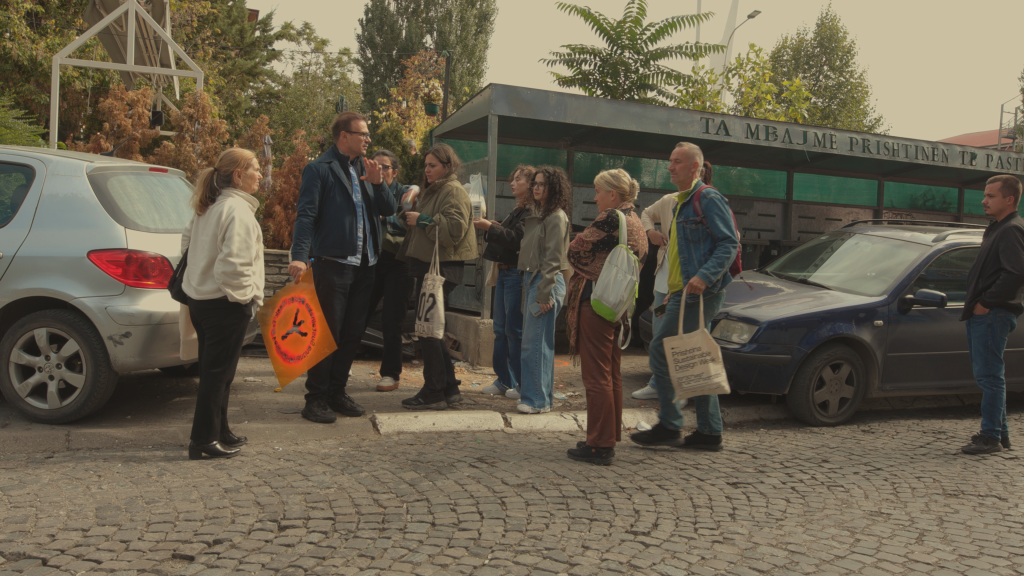
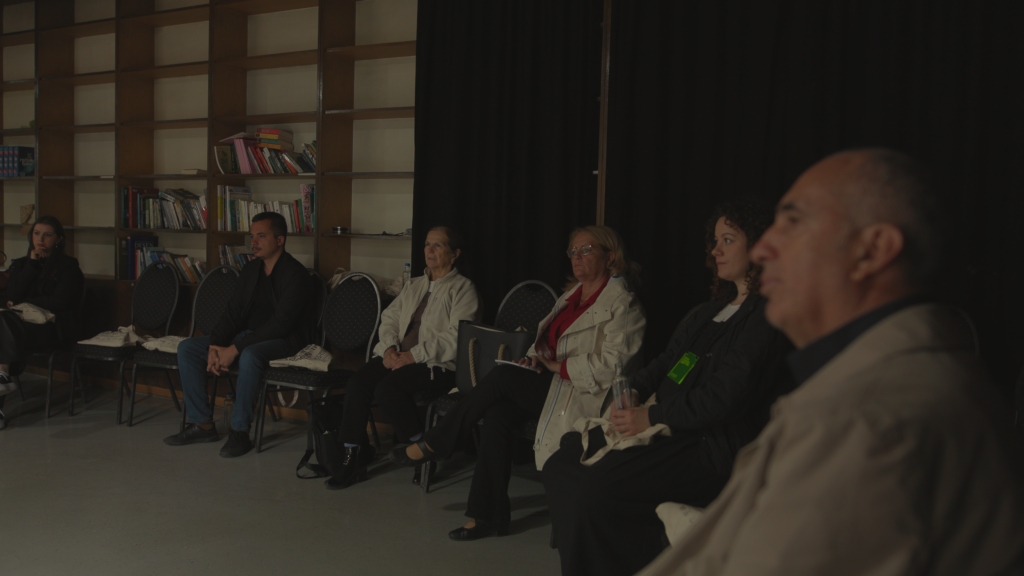
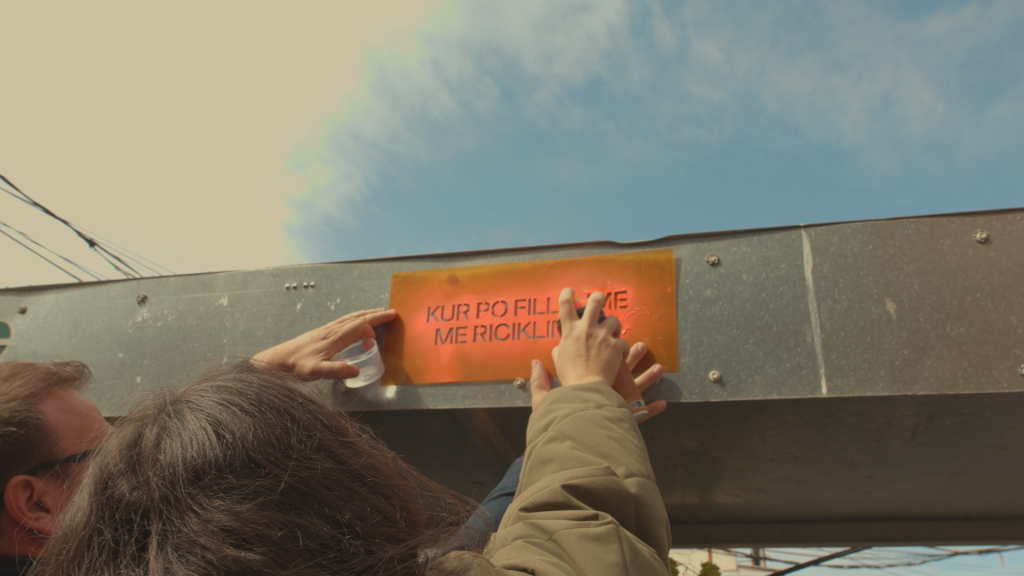
Thematic Conferences at Kino Armata
Four consecutive conferences explored creativity, sustainability, and social transformation—engaging a total of 276 participants (161 women, 115 men):
- Spaces of Possibility (29 Sept) — How creative commons can regenerate urban spaces.
Speakers: Përparim Rama, Nikki Murseli, Maja Lalić, Sonila Abdalli
Participants: 97 (55 women, 42 men) - Creativity as an Act of Repair (30 Sept) — Design ethics and material responsibility.
Speakers: Erzë Dinarama, Samuela Hidri, Zanita Halimi, Ibrahim Beqiri, Ariana Kuqi
Participants: 65 (36 women, 29 men) - Art as an Act of Transformation (1 Oct) — Transparency, emotion, and regeneration in practice.
Speakers: Francesca Pasquali, Driton Selmani, Sislej Xhafa, Behare Bajraktari
Participants: 65 (42 women, 23 men) - Fashion as an Act of Suture (2 Oct) — Women-led sustainable fashion and entrepreneurship.
Speakers: Hana Zeqa, Vlera Cocaj, Katarina Ejdus, Martina Spetlova
Participants: 49 (28 women, 21 men)
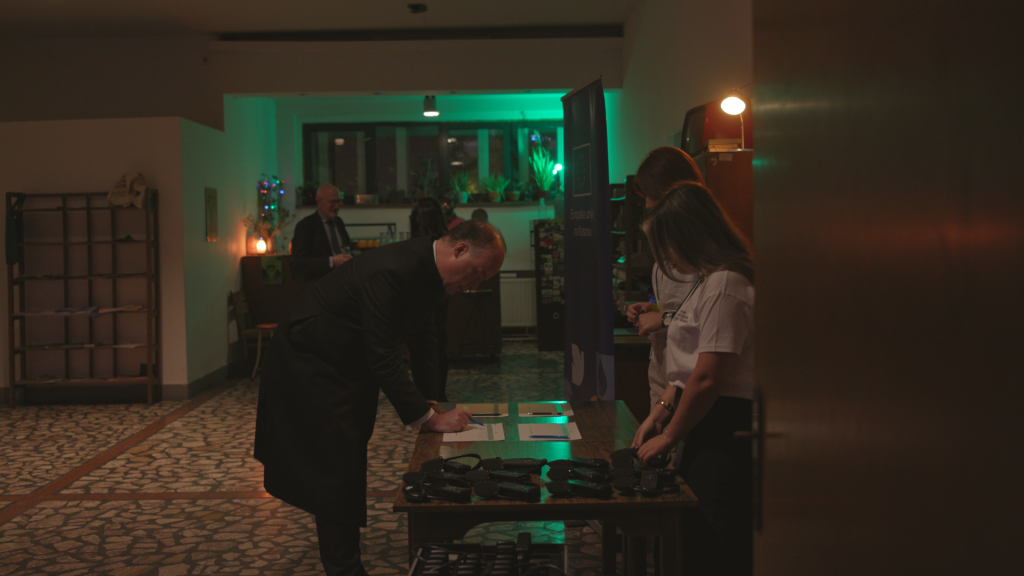
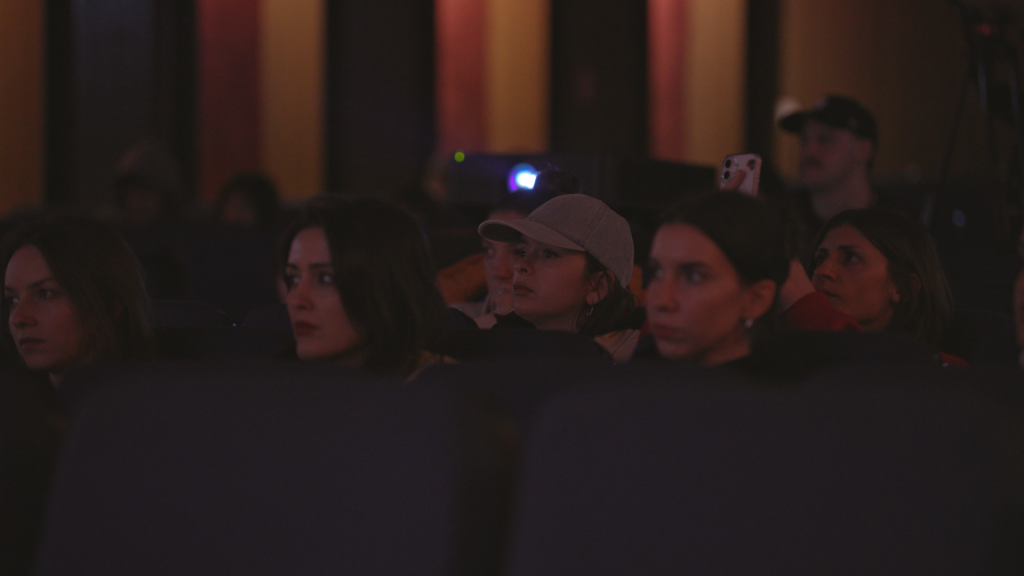
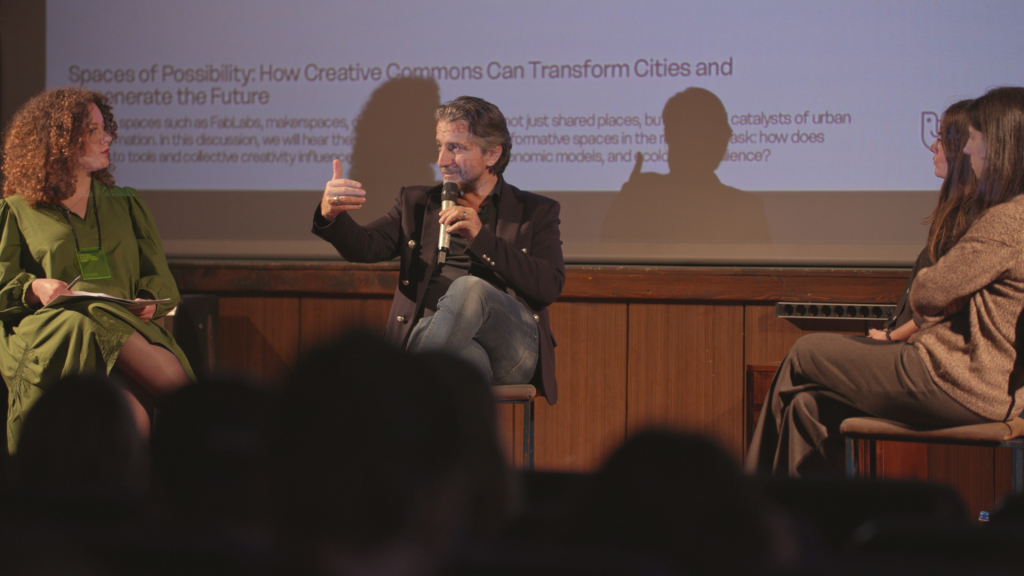
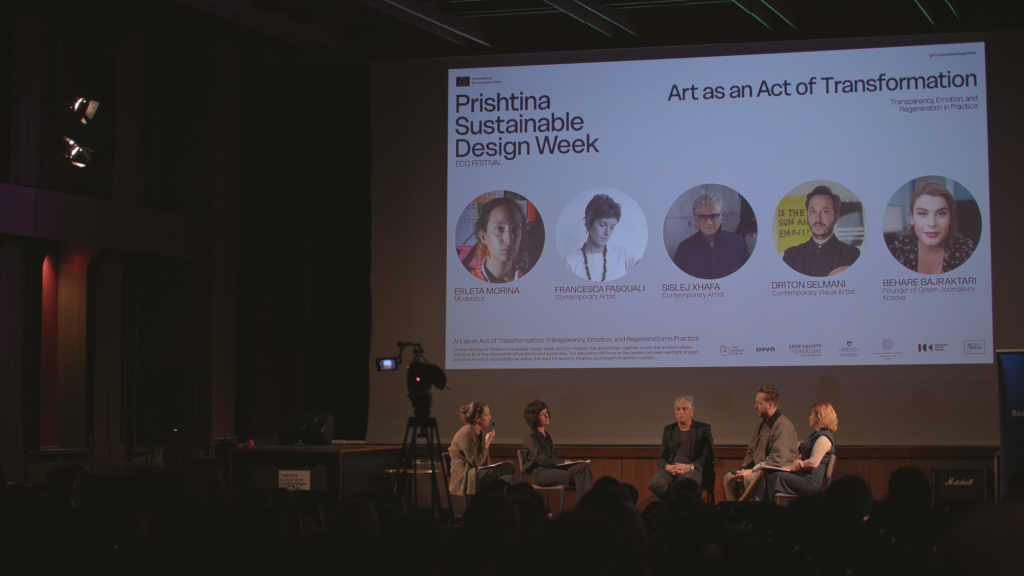
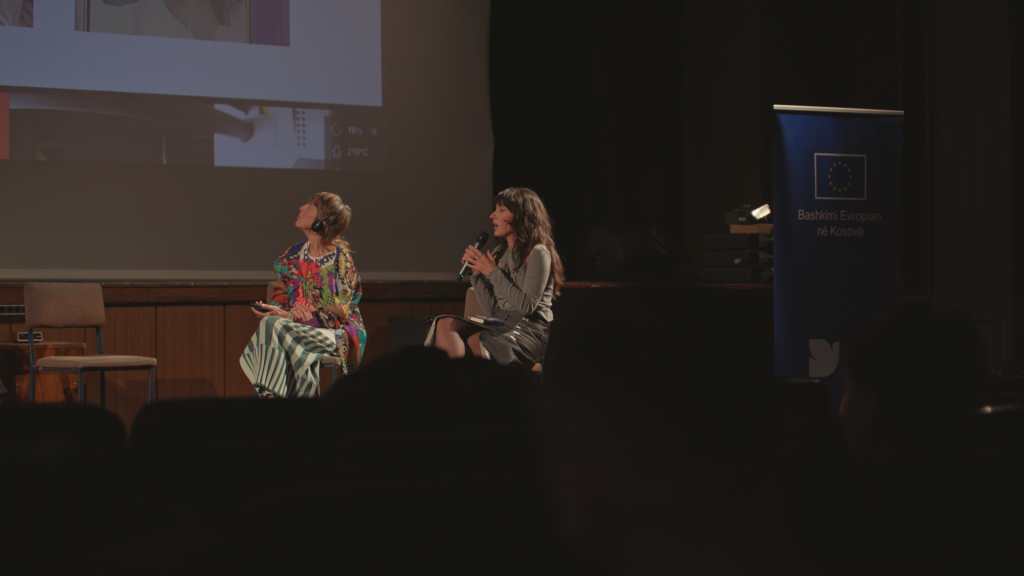
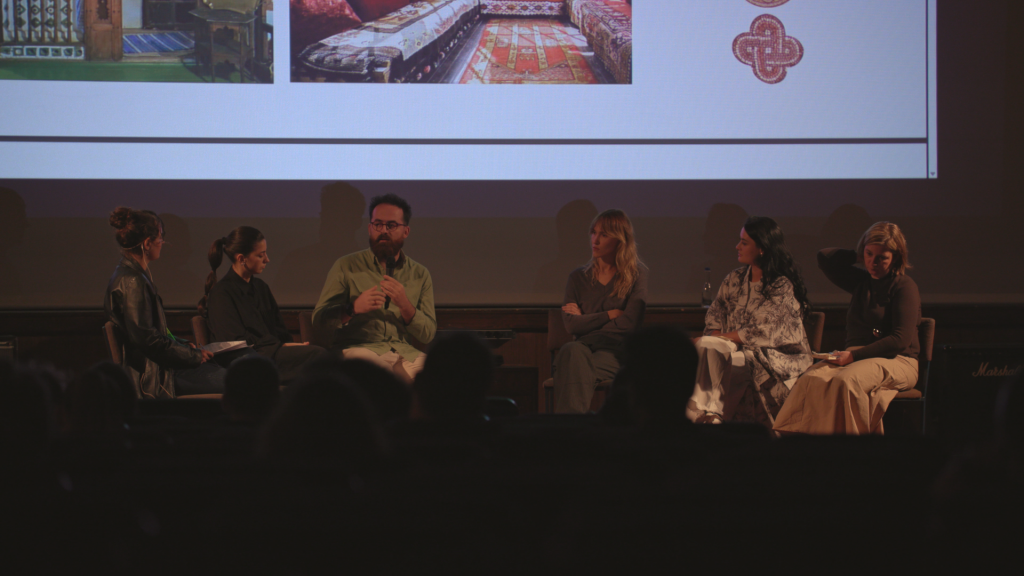
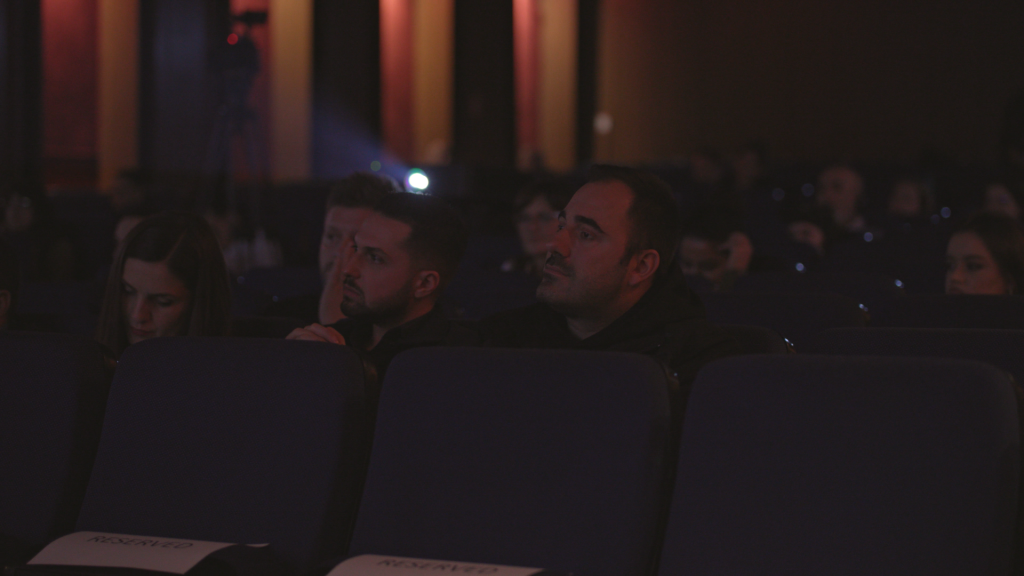
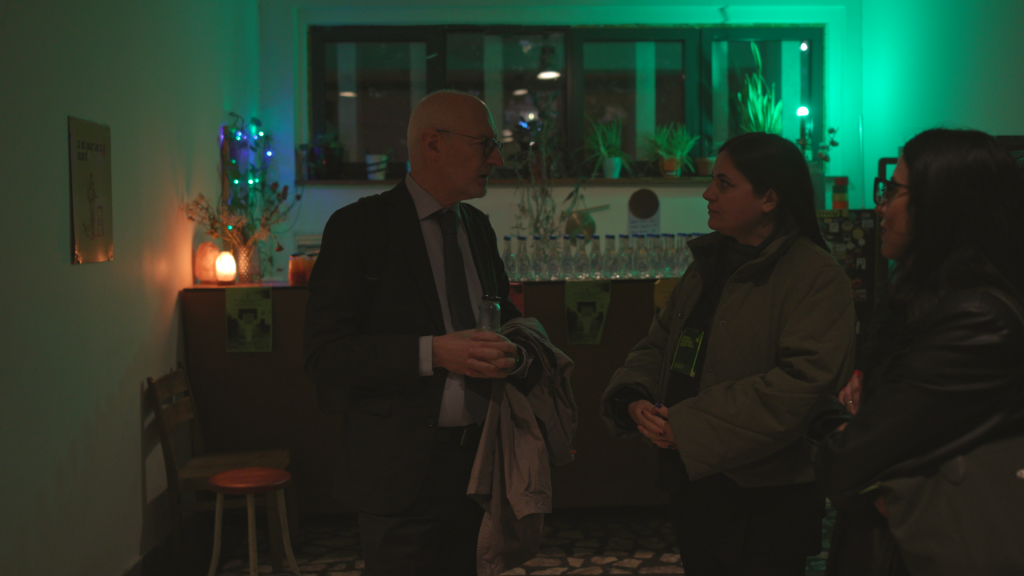
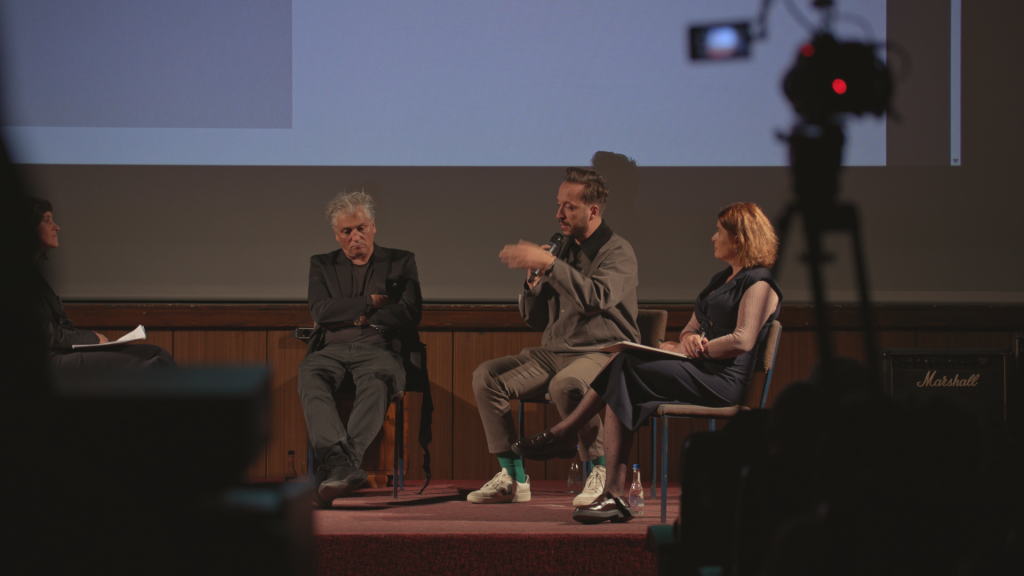
Impact
- 400+ participants engaged across activities
- Intergenerational learning and collaboration throughout
- Strong, practical awareness of waste reduction, circular design, and sustainable living
- Prishtina affirmed as a hub for eco-innovation and participatory democracy, with high visibility via PSDW platforms
Media Coverage
In the lead-up and during the festival, organizers gave 7 interviews across major outlets—KTV – Kohavision, RTK (radio & TV), Koha Ditore, Klan Kosova, and RTV Dukagjini (radio & TV)—afmplifying the message of sustainability and circular economy nationwide.
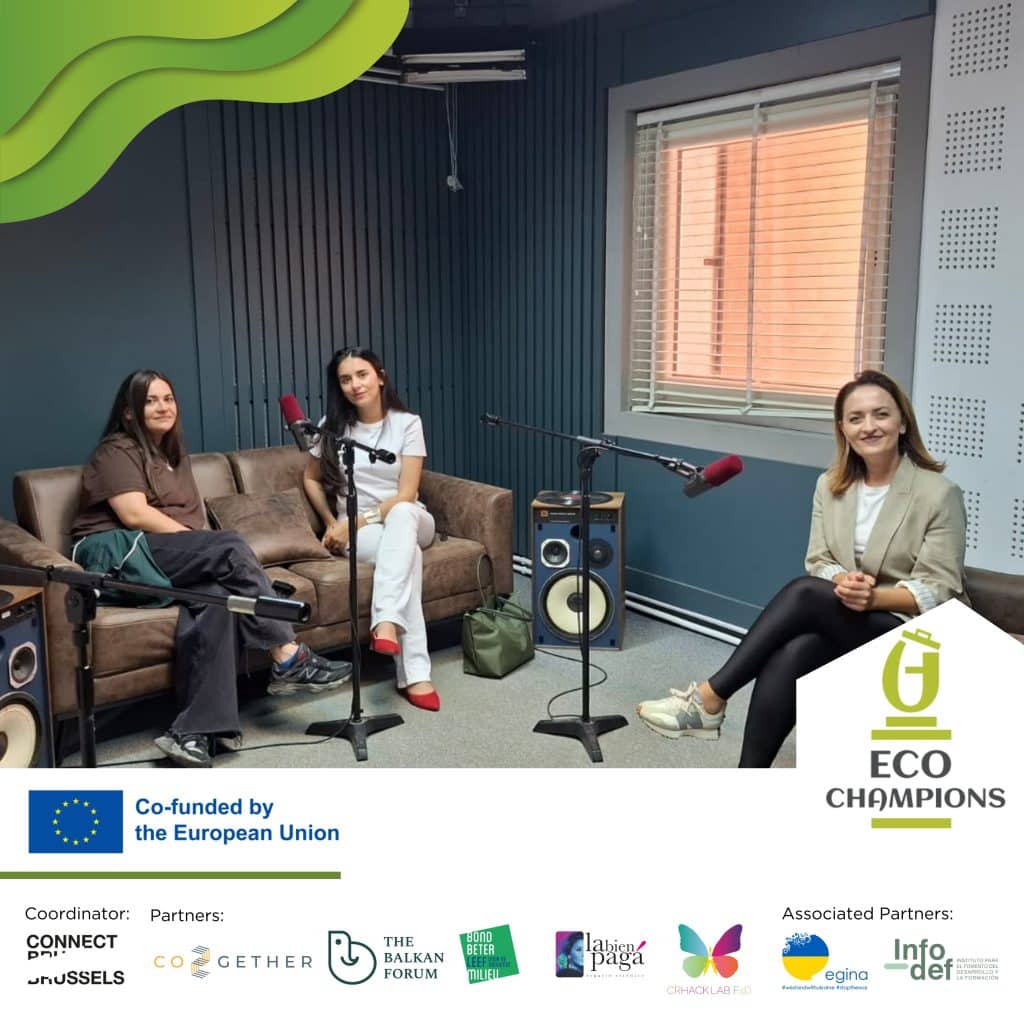
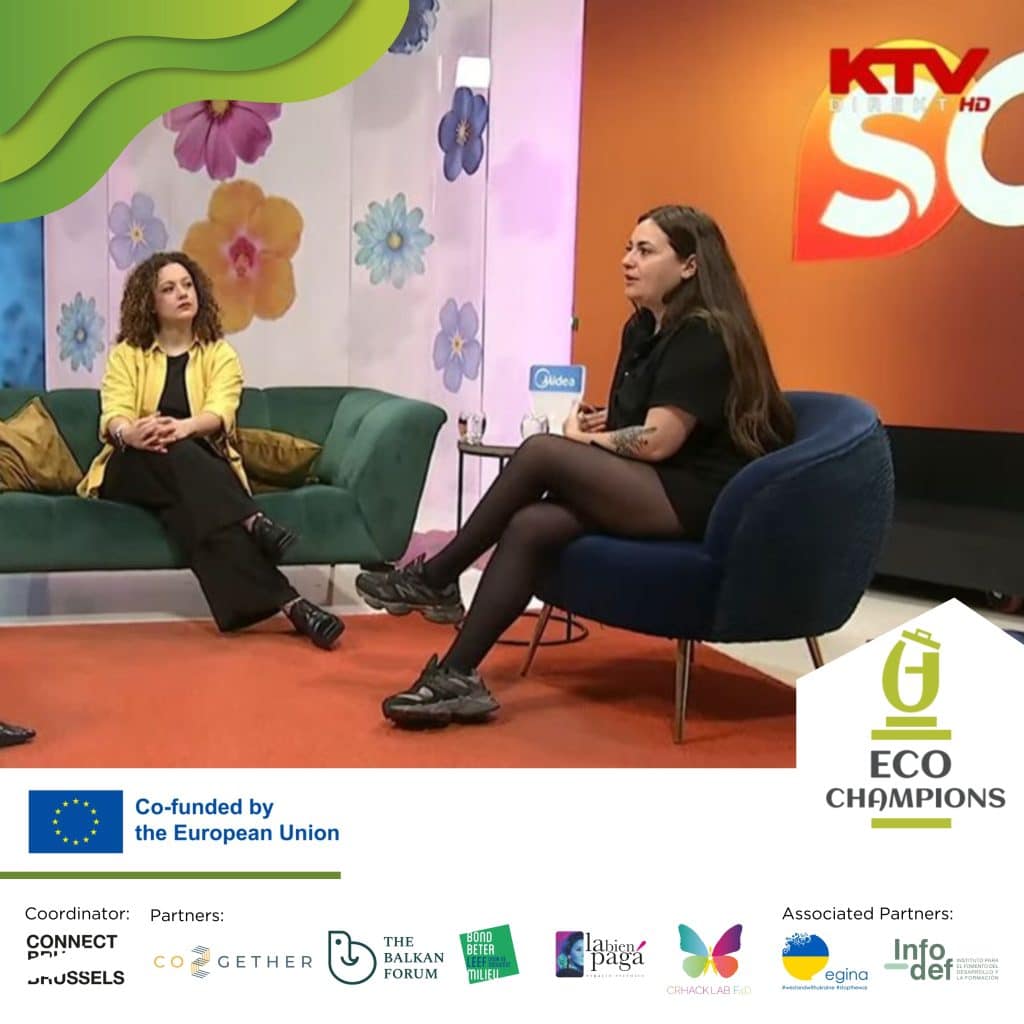
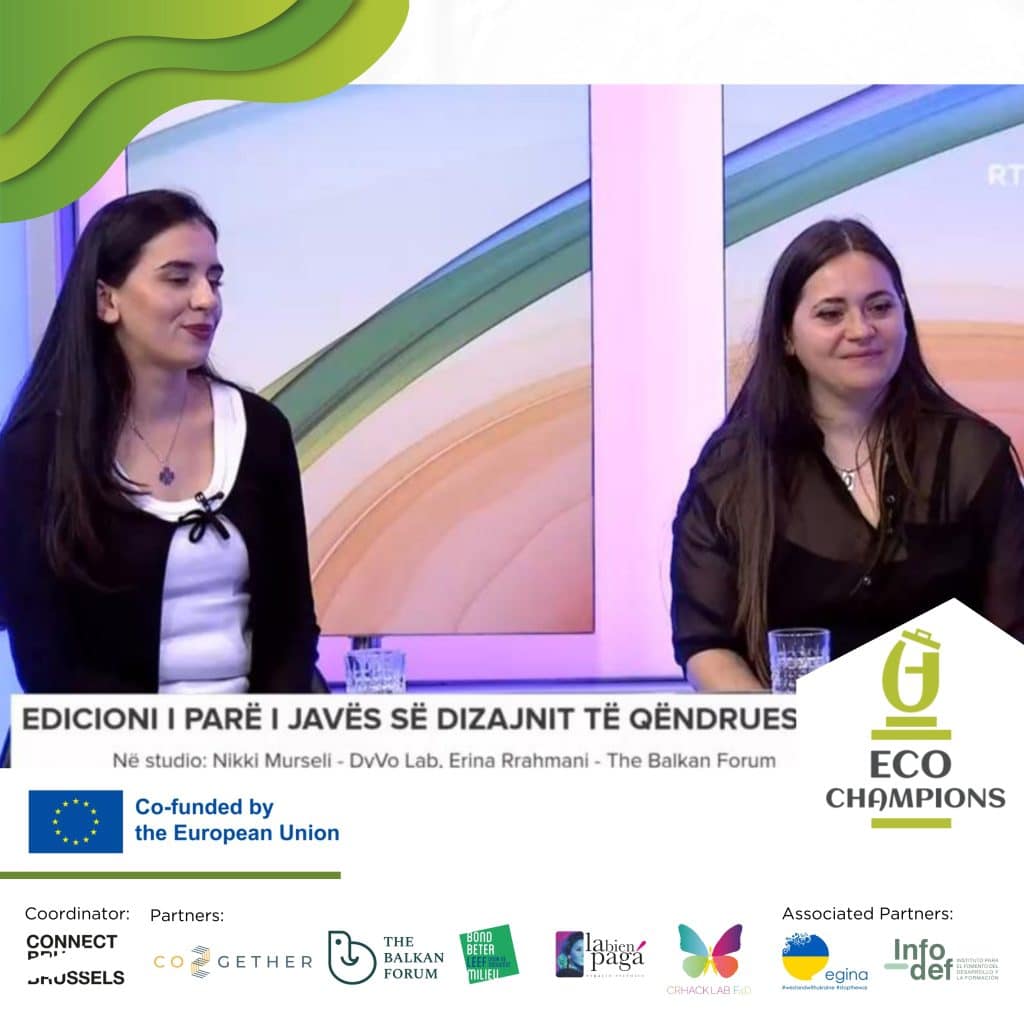
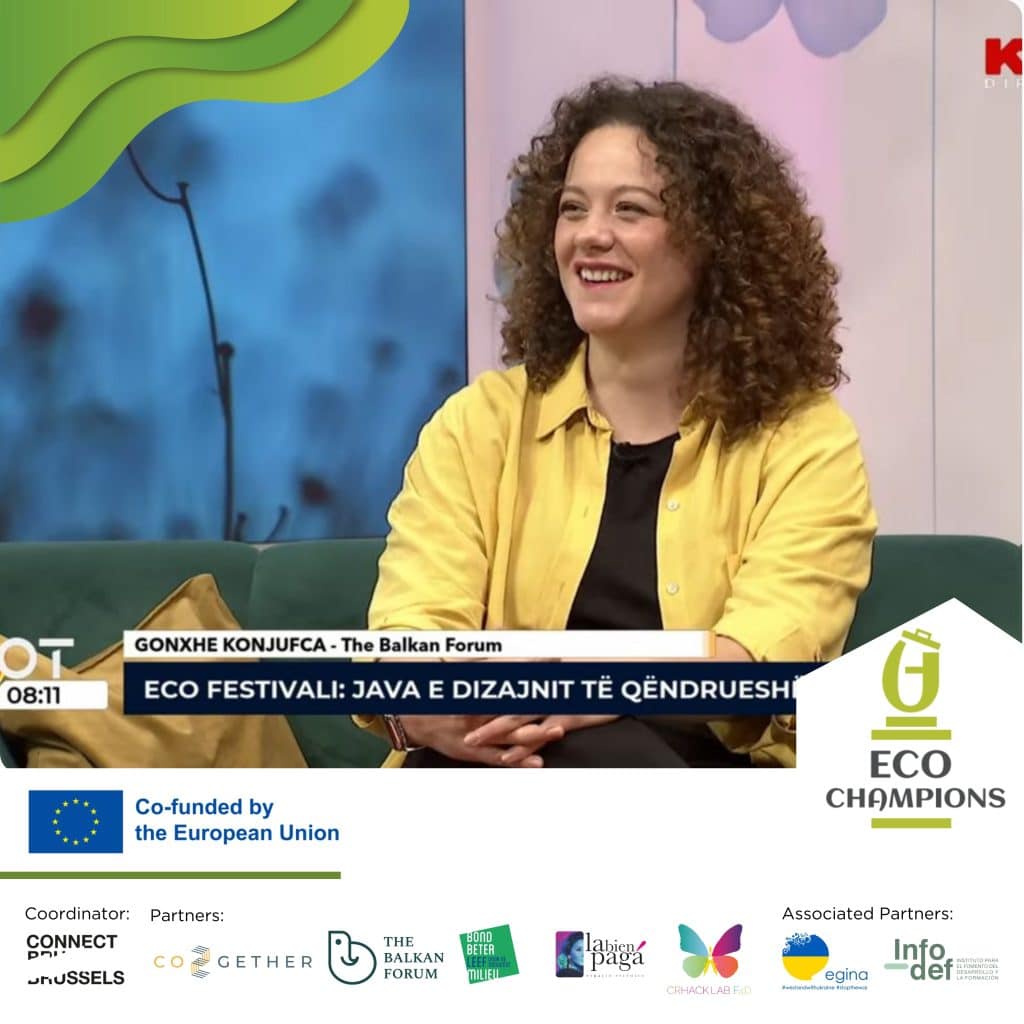
From Awareness to Action
PSDW proved that sustainability is strongest when it becomes part of daily life. The Upcycling Design Marathon, Eco Quiz, and Waste Sorting Challenge turned ideas into hands-on practice, while the Kino Armata conferences created space for open conversation and creative exchange.
What made PSDW unique was its mix of voices, youth, educators, professionals, and older citizens, bridging generations through care, creativity, and shared responsibility. The momentum continues through media coverage, institutional partnerships, and digital follow-ups, moving people from understanding the problem to becoming part of the solution and building a more sustainable Kosovo.
Related documents:
Kick-off Meetinng
The ECO Champions project officially kicked off in December 2024 in Prishtina, Kosovo, launching a collaborative partnership focused on sustainability. Supported by the European Union, the initiative will drive core activities across Belgium, Spain, Italy, Greece, and Kosovo.
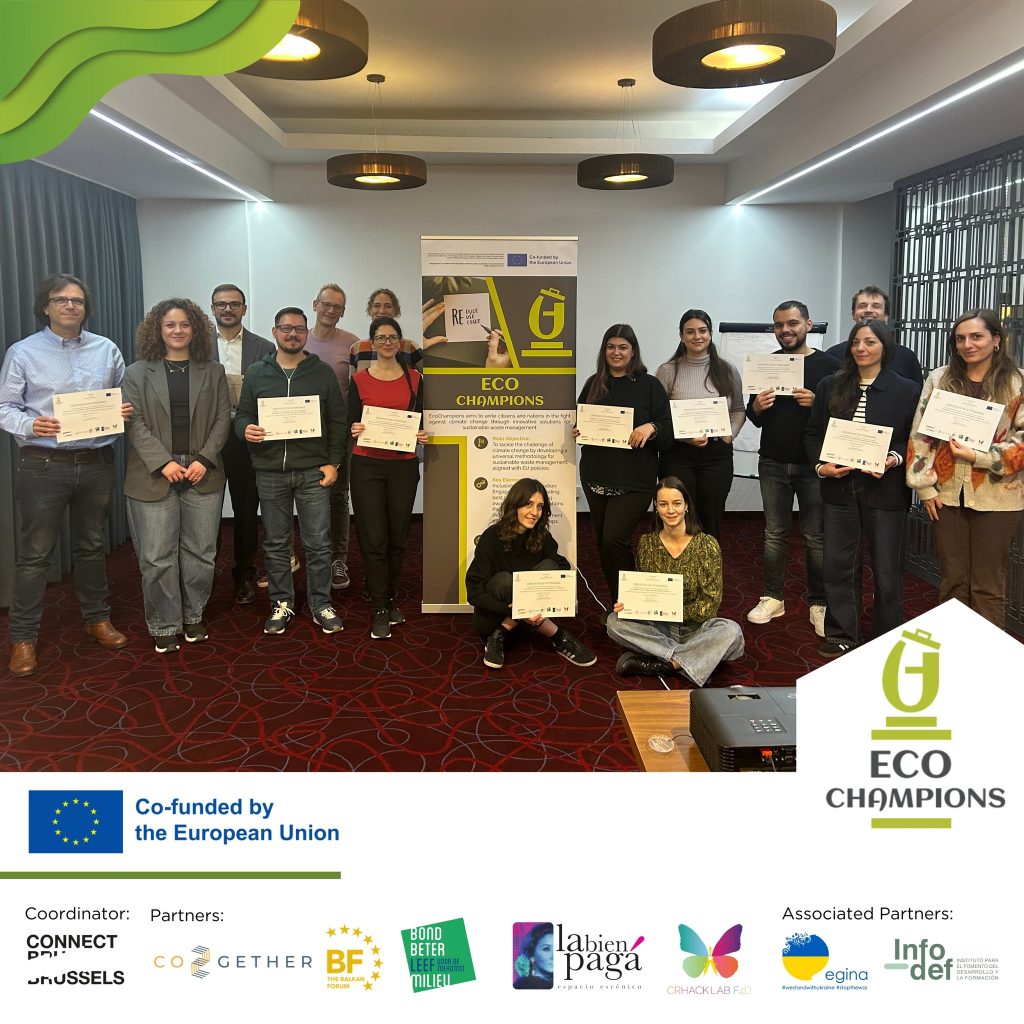
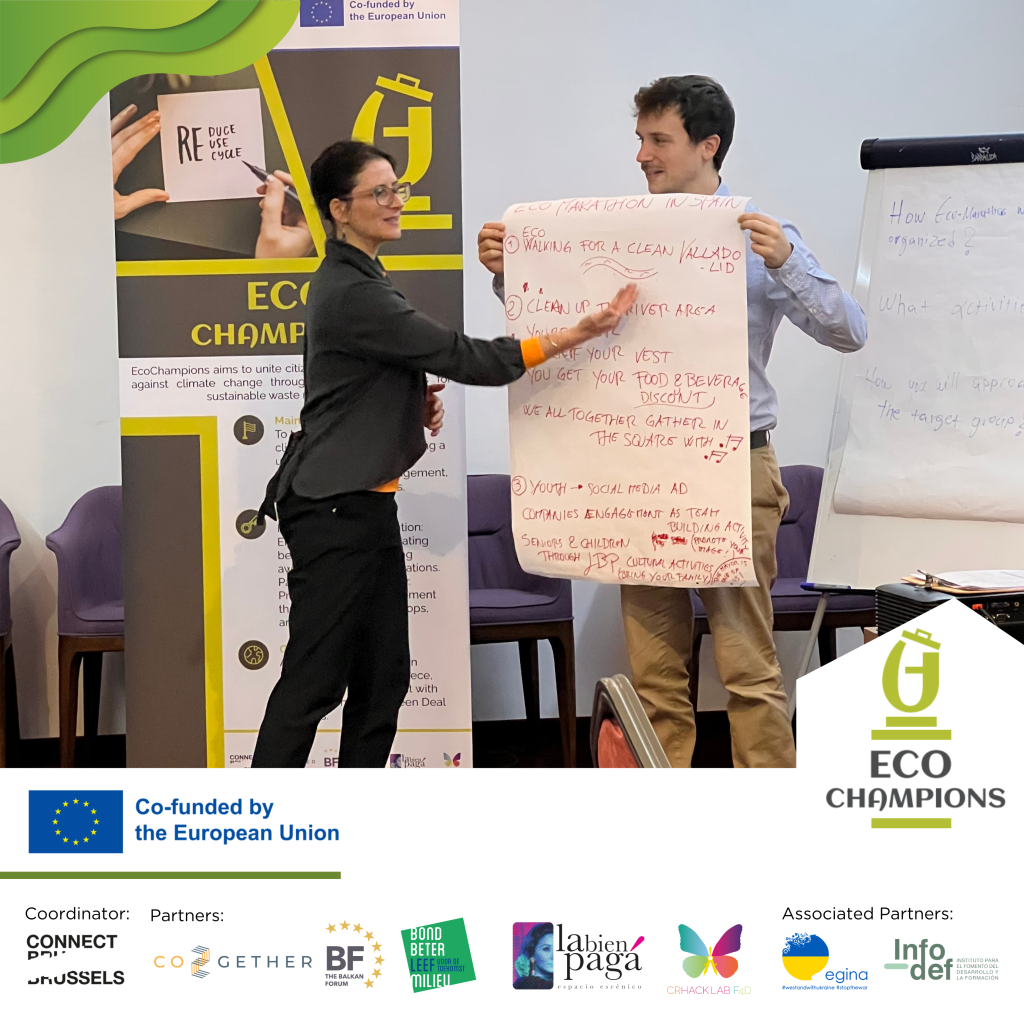
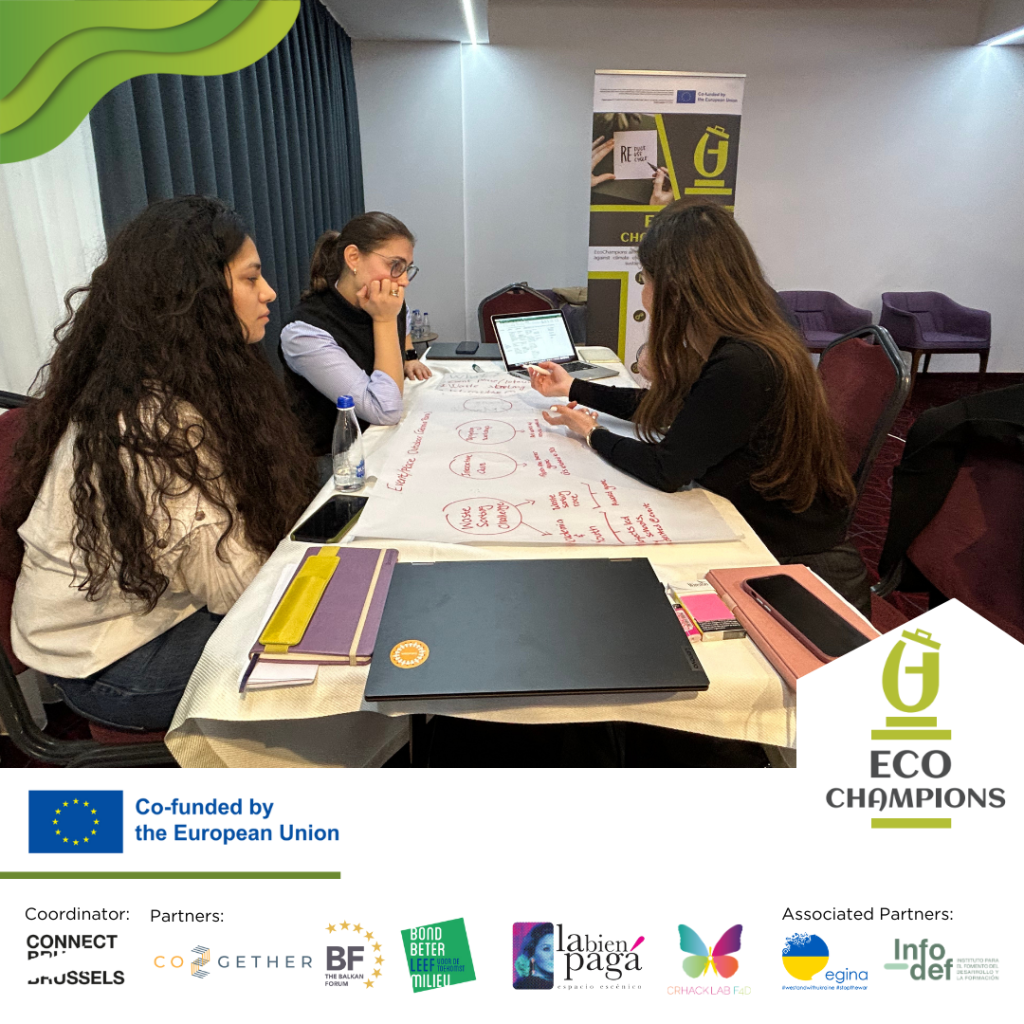
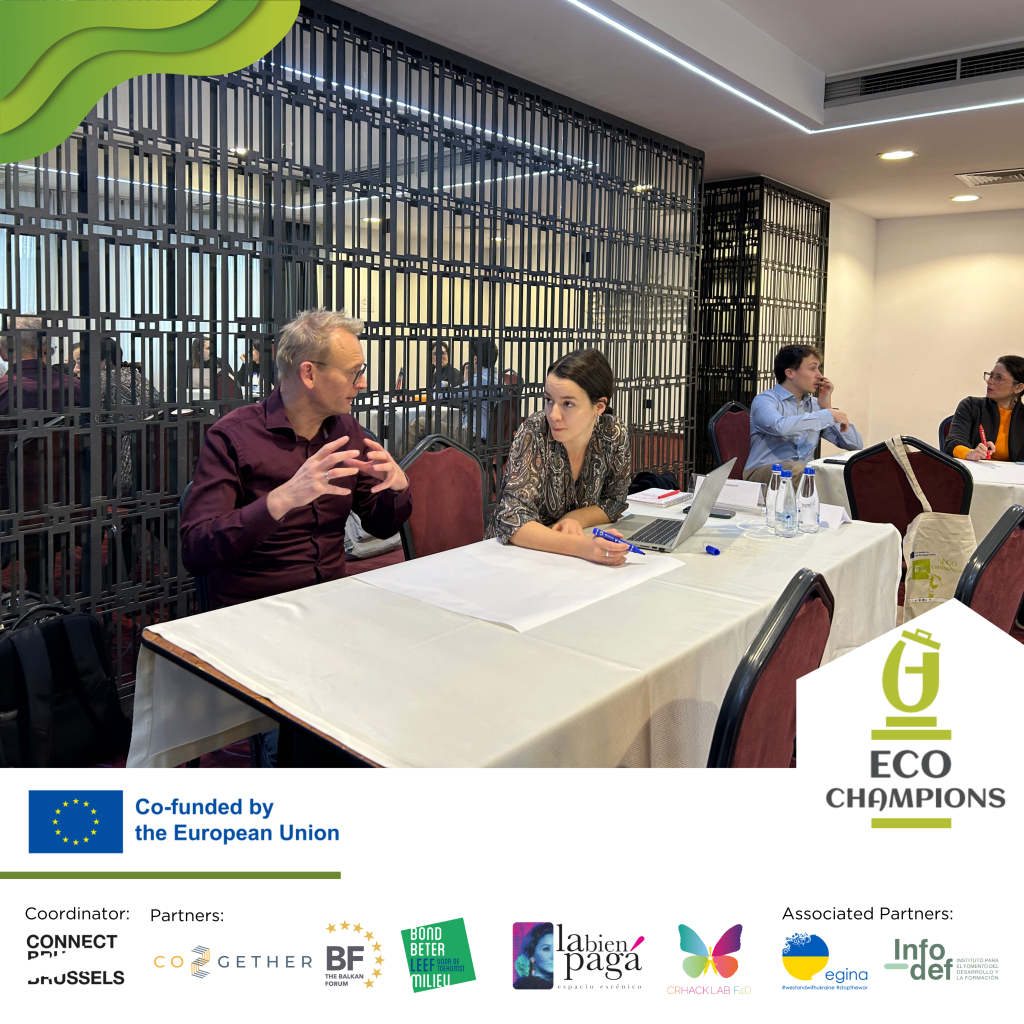
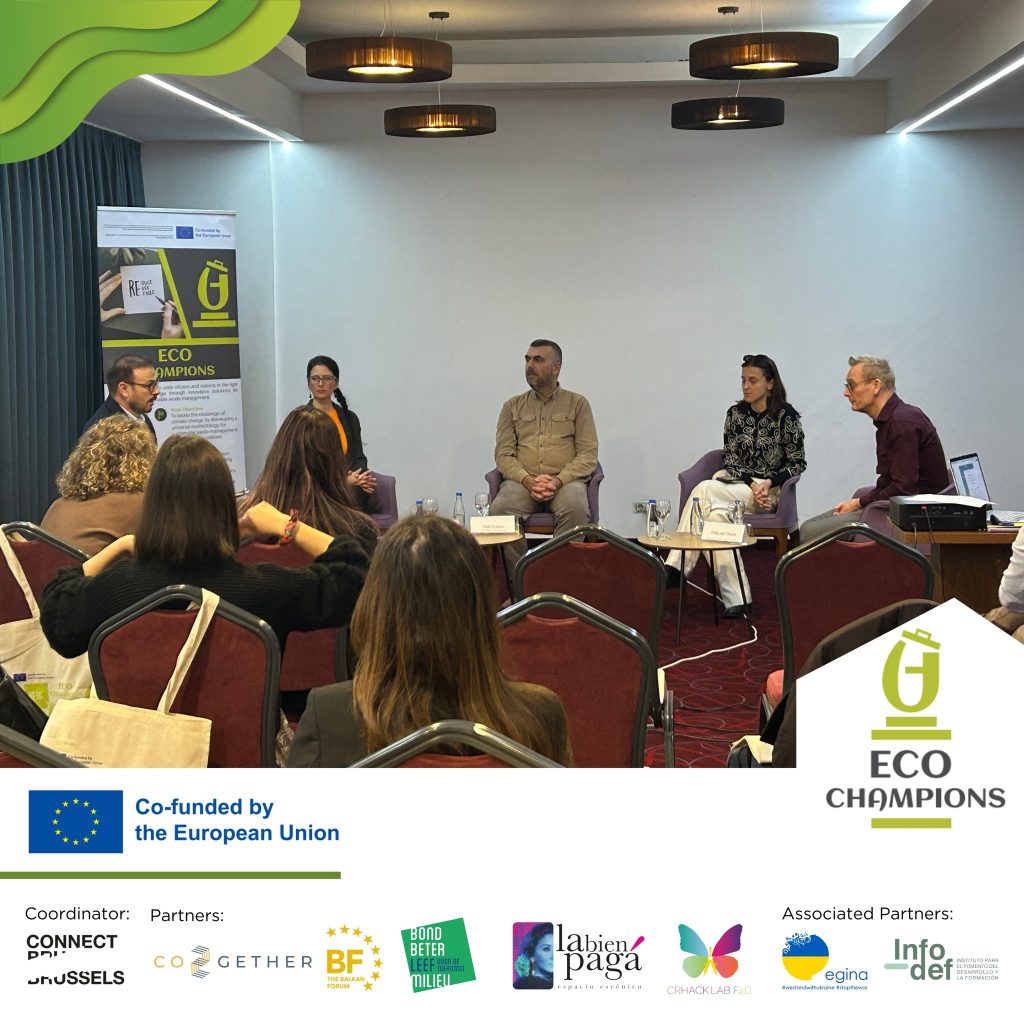
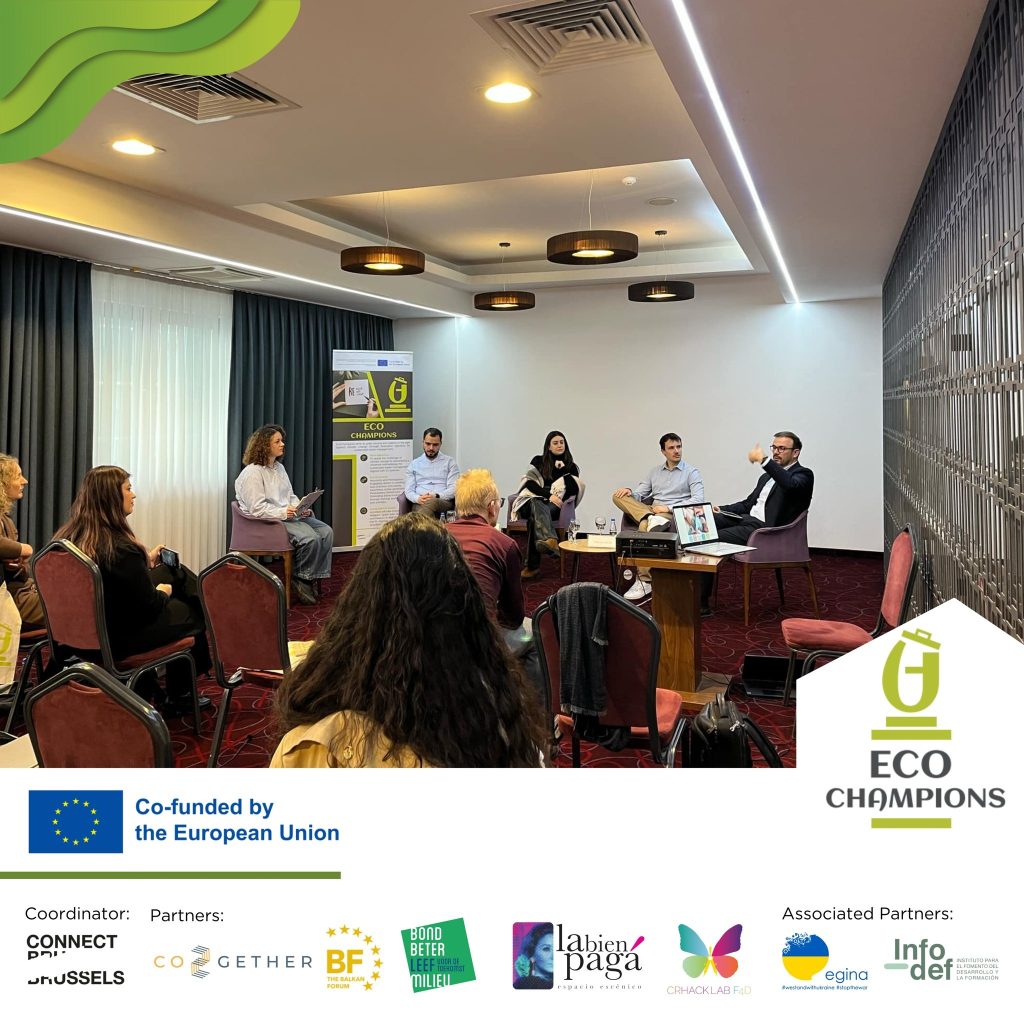
Online Questionnaire
On 5 February 2025, The Balkan Forum launched an online questionnaire aimed at gathering public input to support the development of a Comprehensive Waste Management Plan in Kosovo. This initiative was part of the ongoing efforts to improve waste practices by understanding current challenges and identifying realistic, community-driven solutions.
The questionnaire was open to citizens, youth, institutions, and professionals across different sectors. It focused on collecting insights into everyday waste management practices, public awareness, and existing gaps at both the local and institutional levels.
This short survey took only a few minutes to complete, but it played an important role in shaping a plan that reflects the needs and experiences of communities throughout Kosovo. The initiative also contributed to broader efforts in environmental sustainability, encouraging citizen participation and collaborative action.
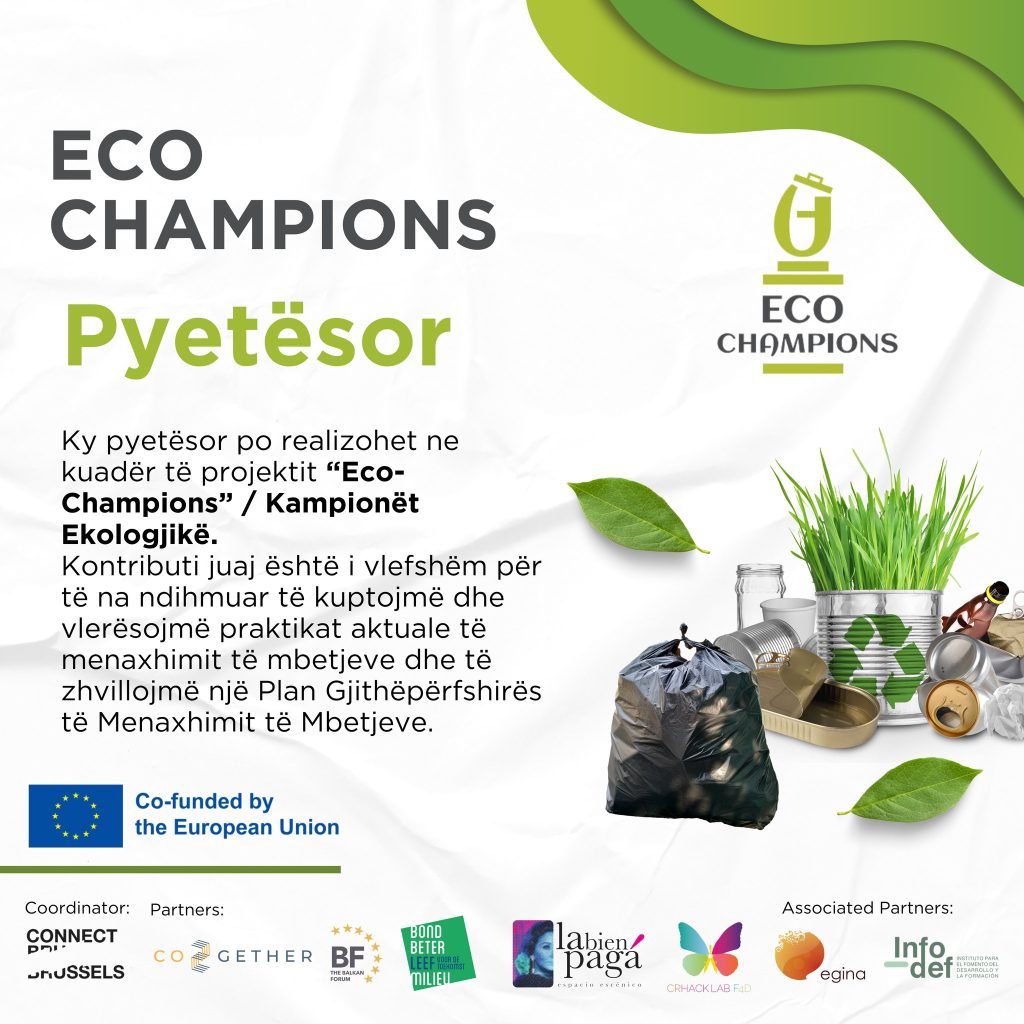
Workshop on Waste Management Challenges and Solutions
On April 30, 2025, The Balkan Forum took part on a hybrid workshop in Pristina to assess the current state of waste management in Kosovo and explore practical solutions for the way forward. The event brought together 25 participants representing public institutions, civil society, the private sector, and youth. With a balanced gender representation and inclusive approach, the workshop encouraged intergenerational dialogue and active youth participation, enriching the exchange of perspectives and experiences.
The workshop focused on three main themes. First, the discussion addressed the ongoing challenges in waste management, with the moderator providing an overview based on the 2024 reports by the World Bank and the EU. Participants raised concerns about illegal dumping, limited public awareness, insufficient infrastructure in both urban and rural areas, and the lack of institutional capacity to enforce necessary reforms.
The second topic centered on Kosovo’s legal framework, which includes the Waste Management Strategy 2021–2033, the Law on Waste, and national and municipal waste plans. While these instruments are aligned with EU standards, participants agreed that enforcement remains weak. There was a shared understanding that laws alone are not enough without strong implementation by responsible authorities.
The third area of focus highlighted progress and good practices. Representatives from municipalities shared successful experiences from local recycling projects, awareness campaigns, and inter-municipal cooperation. Particularly inspiring were two community-led initiatives in Kosovo’s villages, where residents developed their own waste separation systems, maintaining cleaner environments and setting examples for replication.
Throughout the discussion, it became clear that while the policy framework exists, what is urgently needed is stronger enforcement, targeted investments in waste sorting and recycling, and better coordination among institutions. Participants emphasized the importance of local ownership and citizen involvement as essential drivers of lasting change. They also pointed to significant data gaps and limited municipal capacity as major obstacles to effective planning and implementation.
The event served as a valuable platform for exchanging insights and proposing actionable steps to advance Kosovo’s waste management efforts. By fostering dialogue and highlighting both challenges and solutions, the workshop contributed to a deeper understanding of what is needed to create a cleaner and more sustainable future.
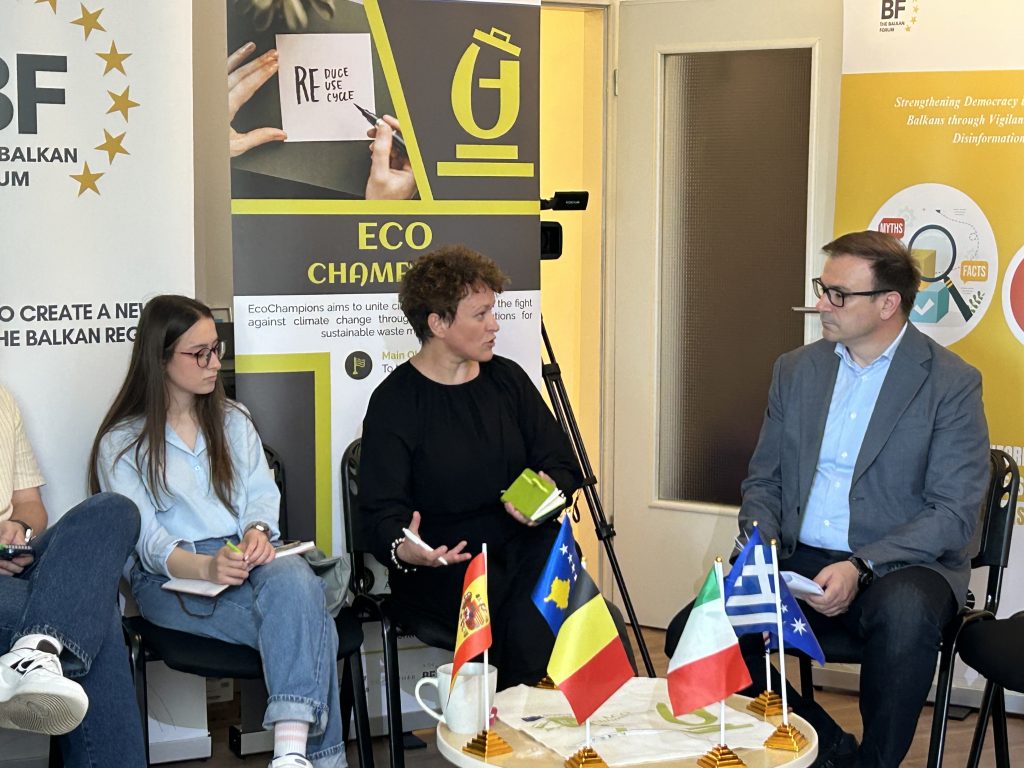
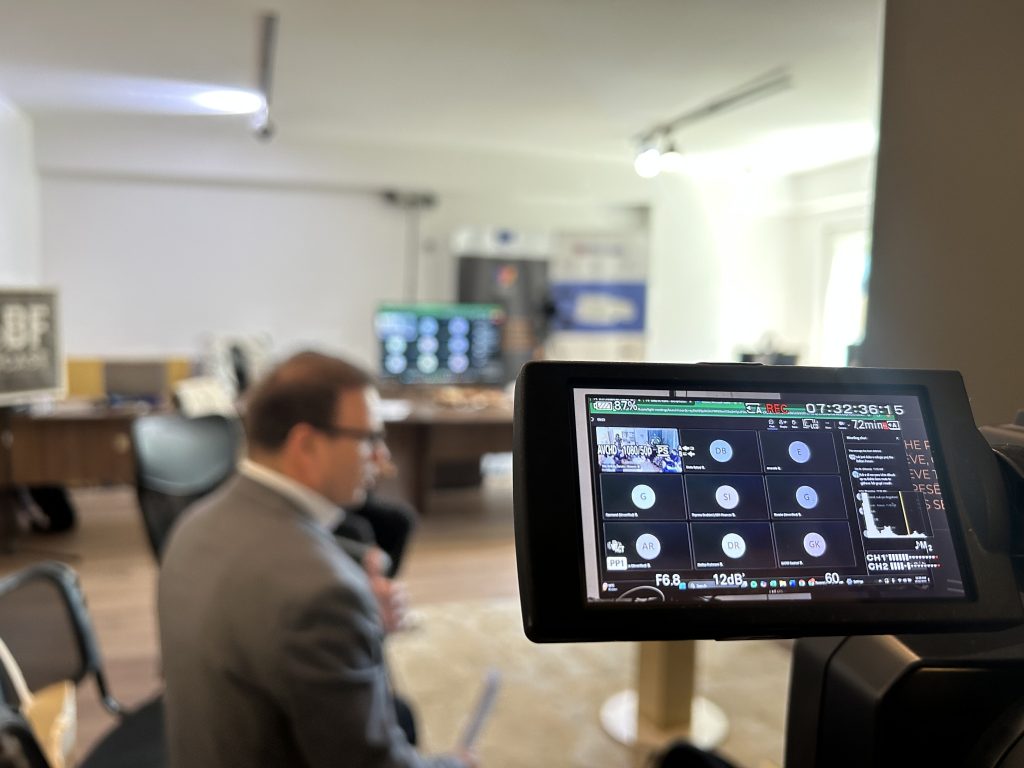
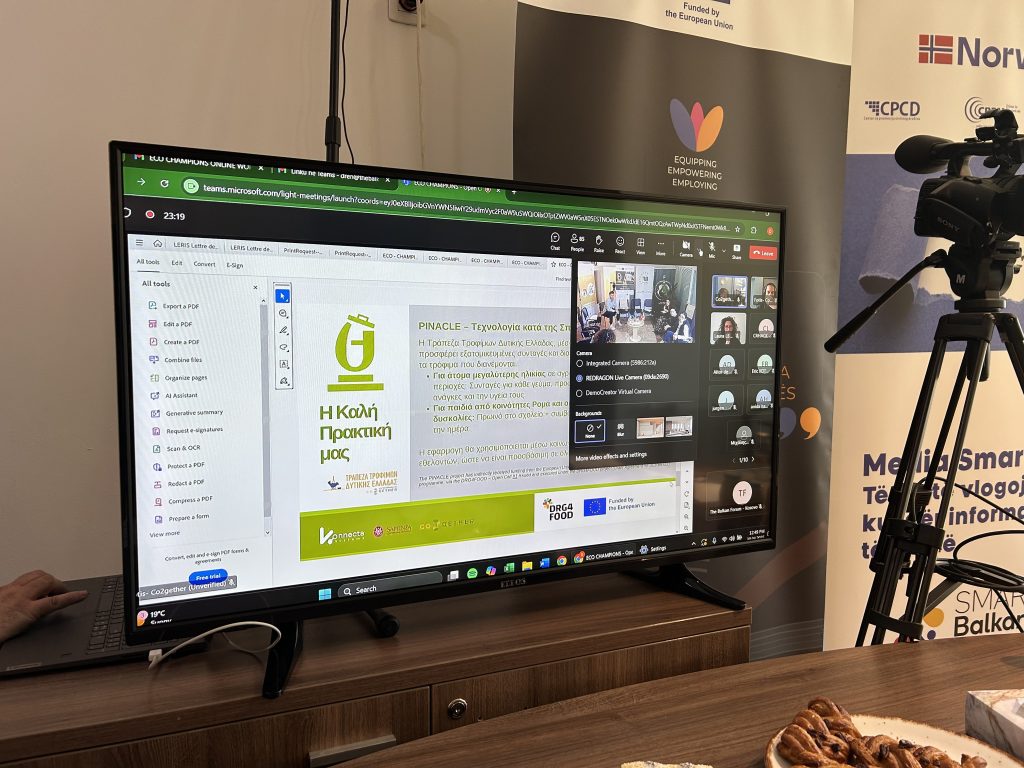
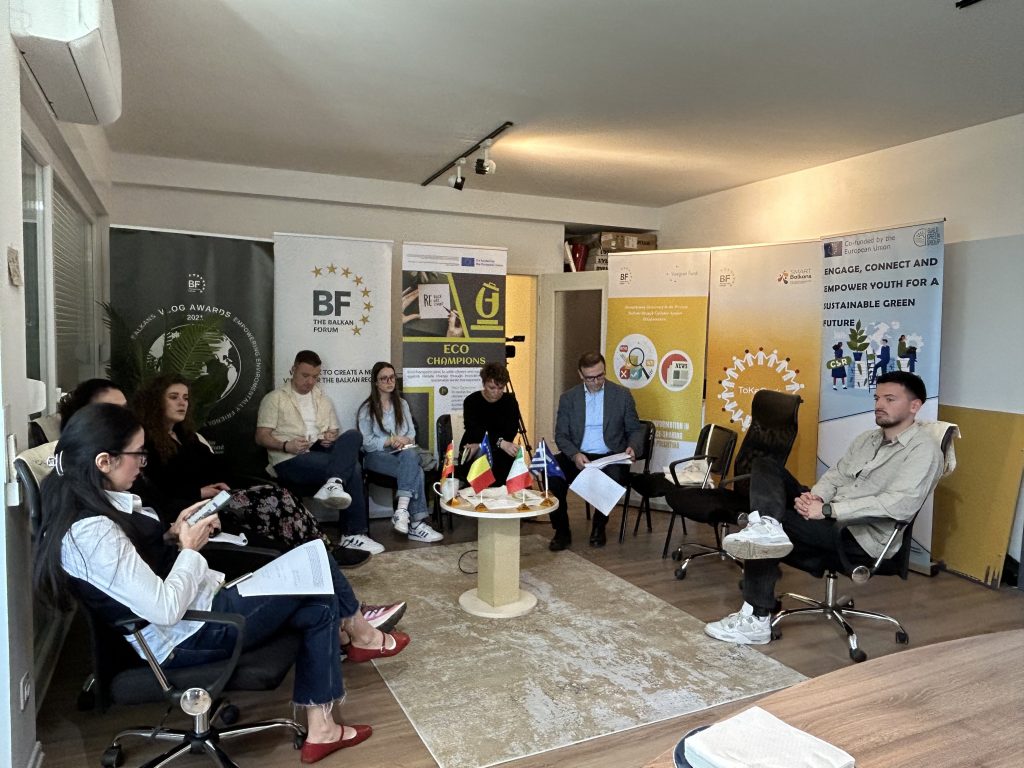
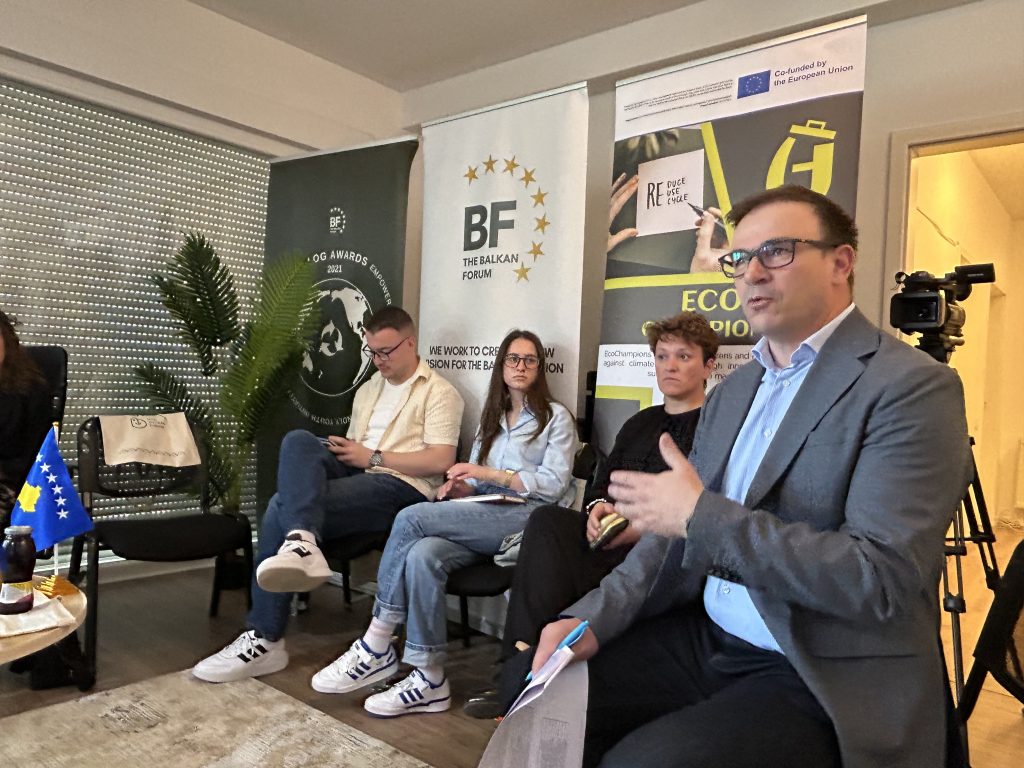
Facilitators Workshop
On May 21, 2025, an online Facilitators Workshop was held with the participation of project partners from Italy, Belgium, Spain, Greece, and Kosovo. The workshop served as a space to share updates on local initiatives and plans for upcoming environmental activities across partner locations.
During the meeting, The Balkan Forum presented its proposal for organizing an Eco Festival in Kosovo. This idea was shared with the consortium as part of the collective effort to promote environmental awareness and community engagement through creative, youth-led initiatives. The festival aims to bring together local stakeholders, artists, and activists to highlight sustainability practices, support local green movements, and foster civic participation.
The online workshop also featured updates from other partner organizations regarding the preparation of local marathons and green events, contributing to the shared goal of promoting climate action and community-based solutions across Europe.


